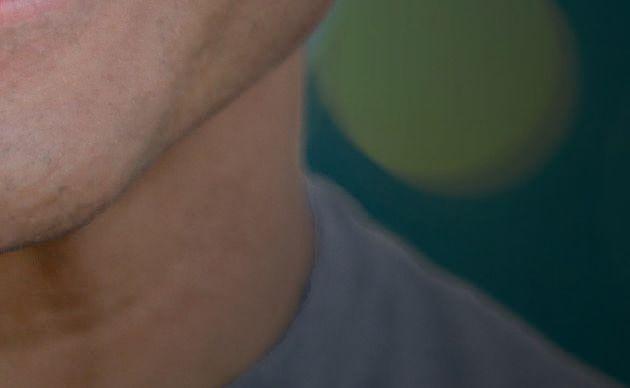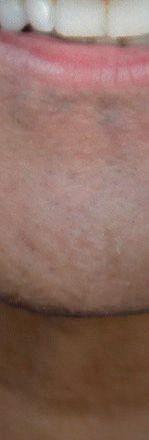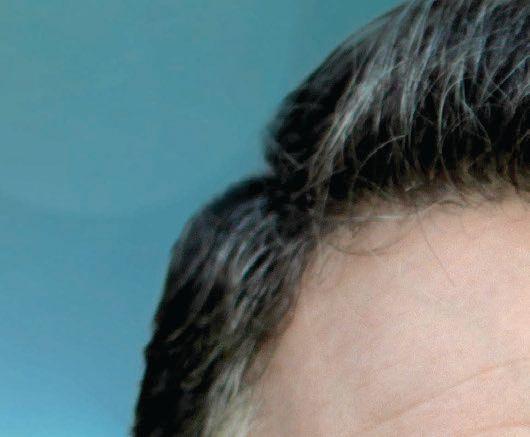MATTERS





Overcoming debilitating diseases
















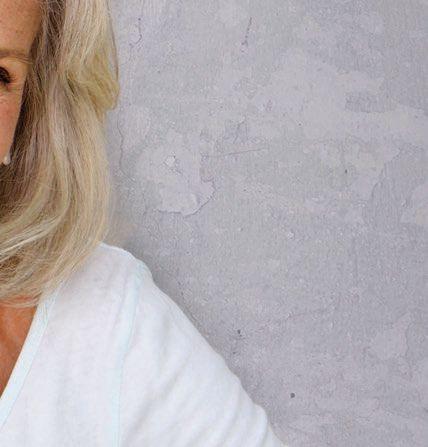











Overcoming debilitating diseases



























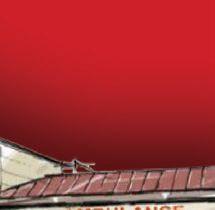



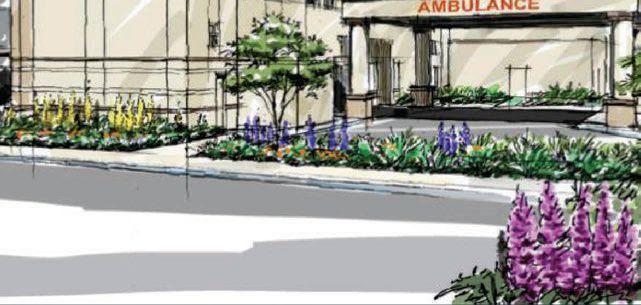
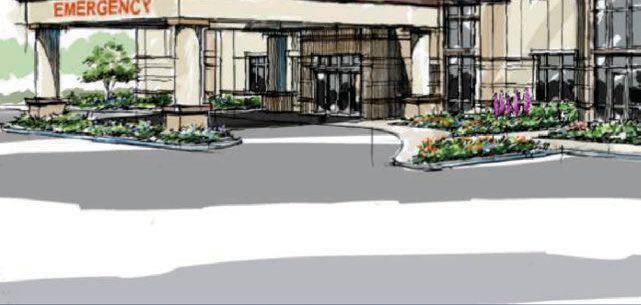





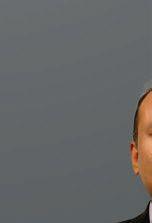

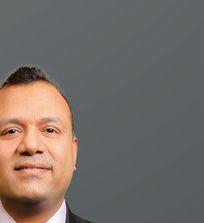

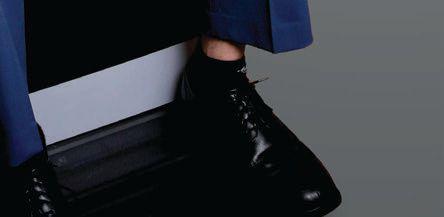

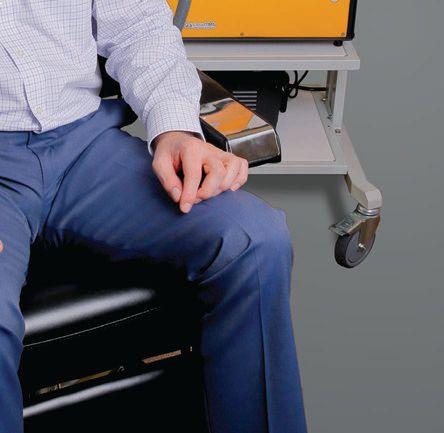
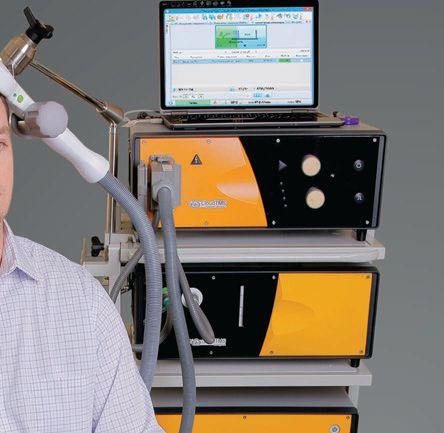
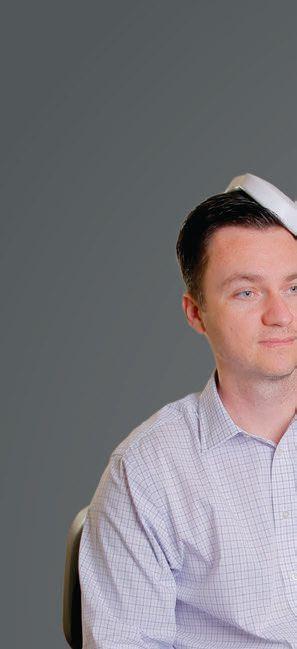
TMS is an FDA approved, non-invasive outpatient treatment for treatment resistant Depression AND is covered by most insurance plans!
to stimulate nerve cells in the brain to improve symptoms of depression. This is typically used when other depression treatments

In order to qualify for TMS Therapy, a patient must have failed to respond to at least one antidepressant. If you have been diagnosed with Major Depressive Disorder and your body has either consider TMS therapy. OTHER




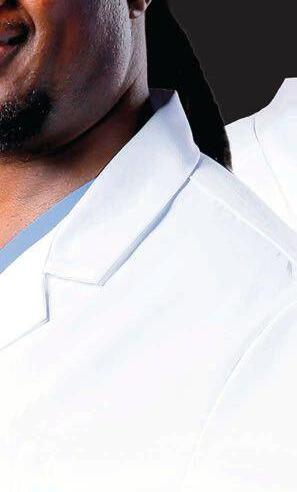











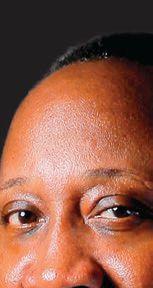




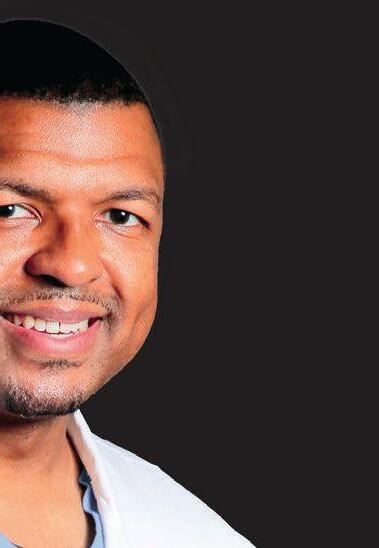




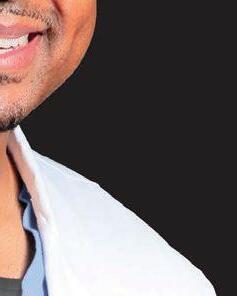





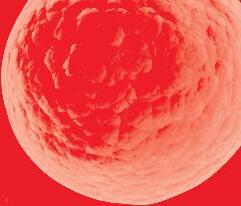











 John T. Williams Jr.
Orthopedic Surgeon
Alfred J. Cook Jr.
Orthopedic Surgeon
John T. Williams Jr.
Orthopedic Surgeon
Alfred J. Cook Jr.
Orthopedic Surgeon
Are stem cells a miracle? Not exactly. However, stem cells are a highly effective means of repairing damaged tissue. Stem cell therapy is a non-surgical procedure that gives the body the tools it needs to heal itself naturally. Stem cells repair damaged tissue and regenerate bone, ligaments, tendons, cartilage and muscle. Pain lessens and range of motion increases after a simple injection—without risk of infection.









Schedule a consult today to see if you are eligible for this cutting edge therapy.







The nation’s largest dermatology practice has three locations in The Villages ® community. We now accept UnitedHealthcare Medicare Advantage.


1503 Buenos Aires Blvd., Bldg. 100

The Villages, FL 32162
352.753.2812
Dr. Michael Bond (Retiring January 2018)
Dr. Michael Wangia
Dr. Christine Moorhead
Scott Clark, PA-C
Nicole Hwa, PA-C
Dori Hite, PA-C (Coming Soon)


Kimberly Neumann, Licensed Aesthetician
Lake Sumter Landing™ 910 Old Camp Road Suite 166
The Villages, FL 32162
352.205.4959
Dr. Michael Bond (Retiring January 2018)
Dr. Michael Burton
Al Sy, PA-C

Kimberly Neumann, Licensed Aesthetician
Appointments: 866.400.DERM (3376)









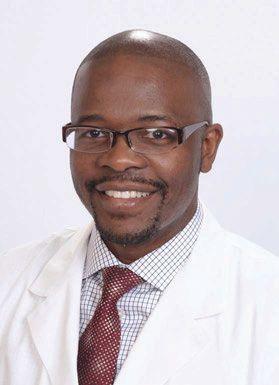











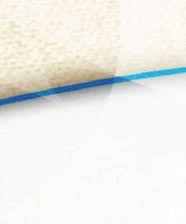






After graduating with Honors from Howard University College of Medicine, Dr. Wangia attended University of Florida where he completed his dermatology residency serving as a chief resident. He also completed his dermatopathology fellowship training at UF where he served as an Assistant Professor of Dermatology. He was awarded “The Arnold P. Gold Humanism in Medicine Award”. Today, he is committed to providing compassionate, comprehensive and individualized dermatologic therapies.
Following a storied career, marked by excellence in patient care, Dr. Bond is retiring. Please join us in wishing him well.

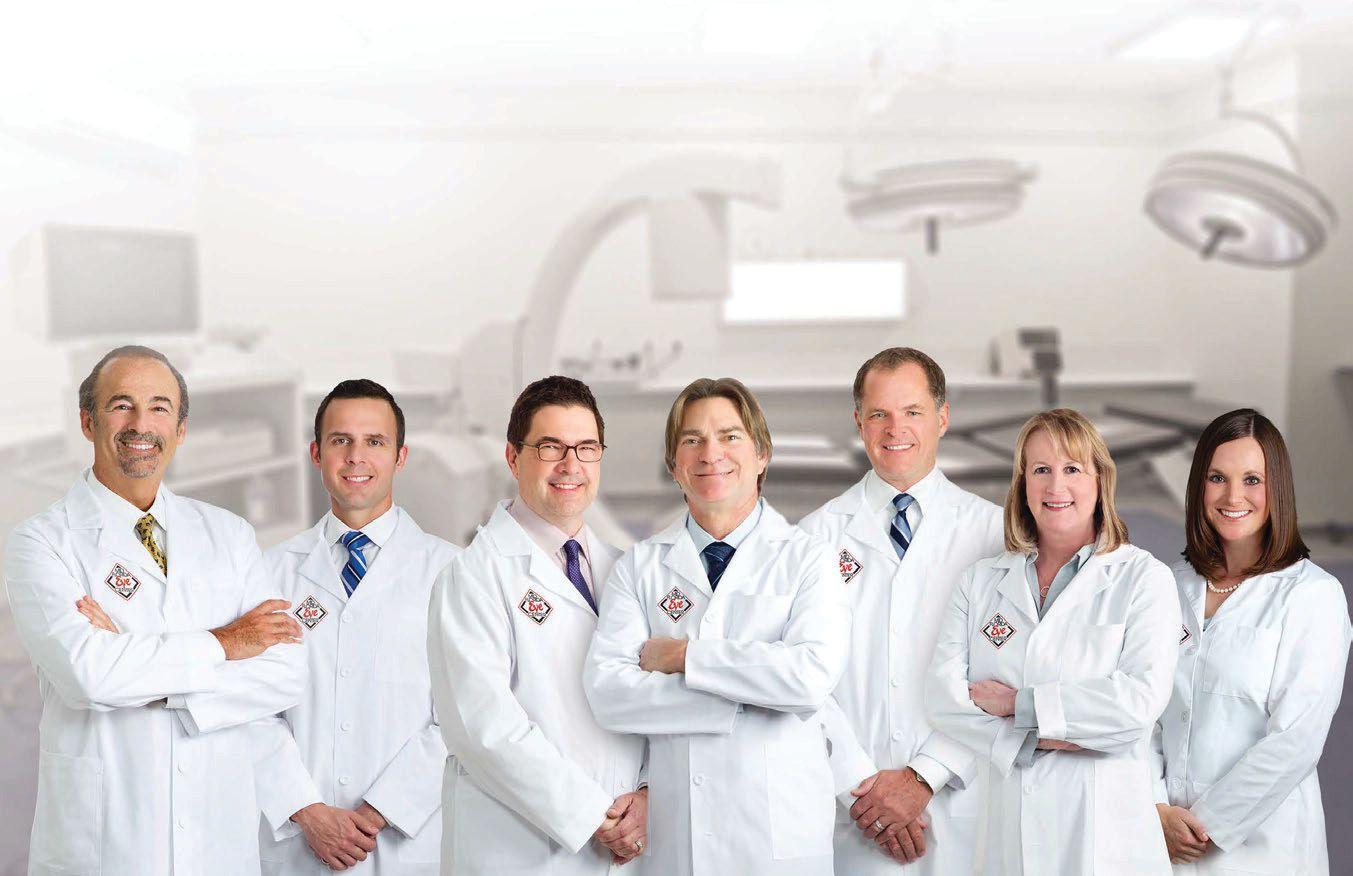

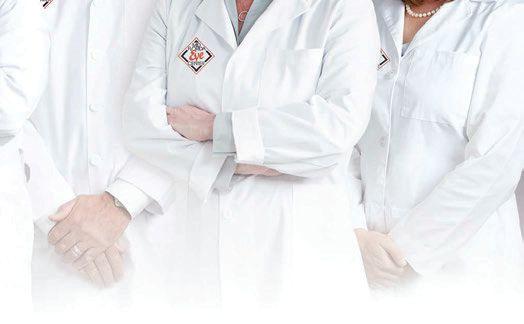
Google, you make me sick. The pitfalls of consulting “Doctor Google.”






diagnosed with a serious disease. Healthy Living talked
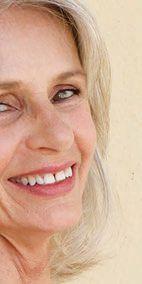
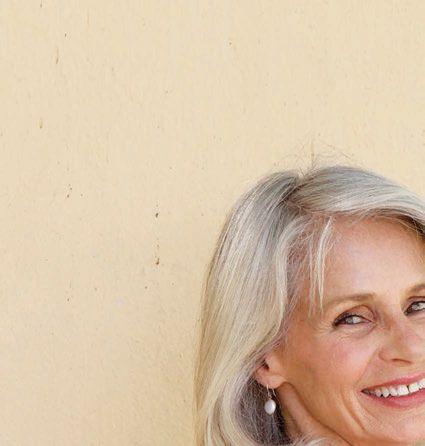
40.
They say laughter is the best
48. “B” your best. an adequate amount of vitamin B12.



51.
52. All brawn, all brain. can lead to better brain function.
54. Ladies: Don’t make pour choices. alcohol to cope can lead women down a dangerous road.
57.
58. Powerful stuff. secrets on tapping into your inner power.

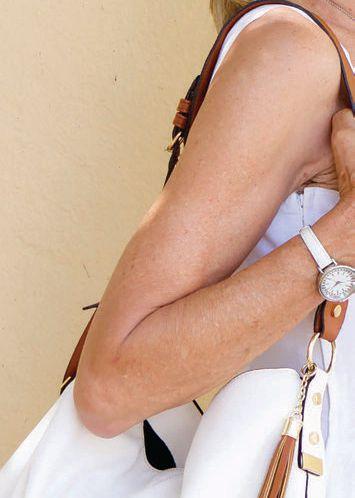


61.

62. 6 ways to reduce health-care expenses.
64. This makes cents.
COLUMNS
10. Publisher’s letter






11. At your service
12. Health matters
14. Healthy inspiration
16. Medical mysteries
66. Final impressions

This month’s issue of Healthy Living touches me on a personal level. I recently lost my 52-year-old sister, Dondi Cote, from complications related to gastric bypass surgery.
For Dondi, the past few years have been a living nightmare. She struggled through various illnesses and various surgeries. Doctors prescribed her a cocktail of medications that provided minimal relief. Her quality of life had dwindled to nothing.
Seeing her suffer was heartbreaking. She was my older sister—the one I spent countless hours talking with about work, children, and life in general.
In her final days, I sat by her bed at Cornerstone Hospice reminiscing about the good times we shared together. Just like a mother, Dondi had unconditional love for me. And I’ll hold her love close to my heart until the day I die.
There was a valuable lesson I learned from witnessing Dondi’s health struggle. I think some of us can be overly judgmental when watching a family member or friend endure chronic pain. We label them as pill-seekers, hypochondriacs, or quitters. You know what? They’re none of those things. They just want some semblance of a normal life, and when medications or surgeries fail to provide
them with long-lasting relief, all hope seems lost.
Those of us who have never suffered from a debilitating disease or chronic pain have no right to be judgmental. Instead, we should shower them with love, provide a listening ear, and be understanding. That way, they know they are not alone in their daily struggles.
In this issue, we shed light on debilitating diseases such as Parkinson’s disease, multiple sclerosis, and cancer. You’ll read about three patients who are able to cope thanks to an outstanding support group that includes spouses and friends. I hope their stories inspire you. We’re also providing a comprehensive list of local support groups that meet throughout the year. These groups are invaluable because they give members an opportunity to interact with others who are impacted by the same disease or illness.
I’d like to end my letter by providing a little advice. It’s bad enough when someone has to battle chronic pain on a daily basis. Let’s do our part to ensure they don’t have to also battle the stigma that accompanies it.

Have a healthy and safe August.
Doug Akers / President doug@akersmediagroup.com
Kendra Akers / Publisher/Editor-In-Chief kendra@akersmediagroup.com
Jamie Ezra Mark jamie@akersmediagroup.com

editorial, design & photography
Leigh Neely Managing Editor leigh@akersmediagroup.com
James Combs Staff Writer james@akersmediagroup.com
Theresa Campbell Staff Writer theresa@akersmediagroup.com
Chris Gerbasi Staff Writer chris@akersmediagroup.com
Anthony Rao Staff Photographer anthony@akersmediagroup.com
Jason Fugate Creative Director jason@akersmediagroup.com
Volkan Ulgen Art Director volkan@akersmediagroup.com
Josh Clark Senior Designer josh@akersmediagroup.com
Michael Gaulin Production Director michael@akersmediagroup.com
Nicole Hamel Staff Photographer nicole@akersmediagroup.com
contributing writers

Fred Hilton, Richard T. Bosshardt M.D., Dave Ramsey, Joy Stephenson-Laws, BE Conrad, Sherry Kelishadi, Dr. Soroya Bacchus, Jaime Brenkus, Tae Yun Kim
sales & marketing
Tim McRae Vice President, Sales tim@akersmediagroup.com
Melanie Melvin Director of Marketing Melanie@akersmediagroup.com
Jacquelyn Singer Advertising Executive jacquelyn@akersmediagroup.com
Judi Murphy Advertising Executive judi@akersmediagroup.com

Shaena Chastain Sales Assistant shaena@akersmediagroup.com
administration
Deb Matlock Director of Client Services deb@akersmediagroup.com

Aubrey Akers aubrey@akersmediagroup.com
distribution
Scott Hegg / Distribution Manager scott.hegg@akersmediagroup.com
digital social media
Garrett Reardon / Digital Specialist garrett@akersmediagroup.com
Kendra AkersCOMMENTS OR QUESTIONS? Our goal is to provide you with the best quality publication,
The latest editions of Healthy Living, Lake & Sumter Style, Village Style, and Welcome to Lake County
Subscriptions: Order a subscription of your favorite magazine to be delivered directly to your home for just $84. Each subscription includes 12 consecutive issues of Healthy Living, Lake & Sumter Style, or Village Style. Choose 2 or more magazines for $108 per year. To order, call 352.787.4112 or mail us at: Subscriptions at Akers Media, P.O. Box 490088, Leesburg, FL 34749.

Change of address: If you are a seasonal resident or have moved, send your address change request to general@akersmediagroup.com or mail us at: Subscriptions at Akers Media, P.O. Box 490088, Leesburg, FL 34749.
Back issues: Order a single issue by mail for $7, or 2 or more single issues for $9. To


To raise awareness of chronic wounds, a common problem for those who suffer from diabetes, obesity, and the late effects of radiation therapy, The Villages Regional Hospital and Leesburg Regional Medical Center Wound Care & Hyperbaric Center celebrated an awareness week in June. The centers, both members of the Healogics network, offer advanced therapies to patients who have chronic wounds. People
with wounds that have not improved with traditional methods of treatment may benefit from a visit to the Wound Care & Hyperbaric Center at LRMC or TVRH, where most wounds are healed within 30 days. In fact, the center in The Villages has been named a Center of Excellence four years in a row. To schedule an appointment in Leesburg, call 352.323.3232, or in The Villages, call 352.751.8820.


The topic of post-traumatic stress disorder is becoming increasingly cant to older adults, both veterans and non-veterans, according to a press release from Leesburg Regional Medical Center. The reasons may be due to age and the impact of increased health problems, decreased sensory abilities, reduced income, loss of loved one, poor social support, and cognitive impairment, among others. Many seniors use unhealthy coping strategies, such as over-commitment to work or volunteer efforts, or drinking too much. For those who find they need medical help, the new Senior Behavioral Health Center at LRMC provides an environment that is comfortable and secure so they can engage fully in recovery. Other behavioral conditions may include depression, anxiety, aggression, or help managing lifelong conditions such as schizophrenia or bipolar disorder. Consult your doctor to determine a treatment plan. The LRMC Senior Behavioral Health Center is available at 352.323.3270.

Estimates are that 6.7 million people in the United States suffer from chronic wounds, which, left untreated, can lead to diminished quality of life and possible amputation of the limb.
Source: Healogics, the country’s largest provider of wound healing services.

Florida Hospital has selected Kelly Ferguson to serve as director of public and government affairs for the Florida Hospitals in Lake, Volusia, and Flagler counties, a press release states. Her responsibilities will include planning, supporting, and implementing government and public affairs for several of the Florida Hospitals, including Florida Hospital Waterman in Tavares. Kelly has 25 years of experience in government and nonprofit development and management. She previously served as chief executive officer of WORC Inc., a local nonprofit organization. She has been executive director of the FUTURES Foundation for Volusia County Schools and the development director for the NewsJournal Center in Daytona Beach. Most recently, she worked as a licensed Realtor in St. Johns, Flagler, and Volusia counties.
Not long ago, Healthy Living received samples from Honey Belle. The Gold Collection included Luxe, Flora, and Elixir. The cleansing oil in Luxe has a base of organic and cold-pressed apricot kernel seed oil, which helps repair the skin, prevent fine lines and other signs of aging. It’s great as a daily cleanser or waterproof makeup remover. Flora is organic rose water and rosewood, which smell delicious. Created for all skin types, it cleanses, tightens, and tones the skin. It also reduces acne scars and blackheads. The organic hemp seed oil, grapefruit, and basil in the Elixir makes skin firmer so it looks younger. It’s also great for all skin types. All the products from Honey Belle were created for specifi These products were tested by a staff member and came through with fl colors. Beauty may only be skin deep, but with these products, that skin can be more beautiful.




Most parents have run the gamut of ways to make bedtime easier for them and their children. Getting some kids to go to sleep proves very challenging. The Moshi Twilight app helps settle children down and creates a sense of peace and inner safety to make bedtime calmer and help children go to sleep faster. The good-night stories on the app focus on a fi out” moment after the bedtime story is finished. The stories on the app have dreamy melodies with calming narration, and guided relaxation with soothing sounds. The app is available for phones or tablets on Android and iPhone sites.

Shane Johnson is running everywhere to help homeless people.
Story: Chris Gerbasi Photo: Hike Across America


Pull yourself up by your bootstraps. That’s the motivational message a former Marine has for homeless veterans and teenagers.
Shane Johnson, who was homeless for two years, now runs three companies near Orlando. And he pulls himself up by the laces of his running shoes, completing incredible endurance runs in a campaign to raise awareness about the difficulties veterans face when they


Last year, Shane ran 22 miles a day for 65 straight days during a “Hike Across America” from Orlando to California. Those numbers carry a heavy meaning: 22 represents the estimated number of veterans’ suicides each day, or one every 65 minutes, he says. Along the way, he stopped at 20 homeless shelters, distributed 10,000 hygiene kits, and competed in marathons.
“It’s about leading by example and showing that a normal person can make a difference,” Shane says of his commitment.
The cause is close to his heart. After serving in the Marines, Shane opened a mortgage company. Then the economy tanked and he lost everything, including his home. But he leaned on his military discipline to regroup, educate himself, and redevelop his business. He tells homeless veterans the military has given them the experience
“It’s a tough love approach,” Shane says. “Do you give sh and feed him for a day or teach a man to sh and feed him for a lifetime? I use the ‘teach a man to





This summer, he’s teamed up with the Pink Bow Foundation to aid homeless teens. Shane again is running 22 miles a day for 65 days, this time in Clermont and surrounding communities. Businesses are sponsoring hygiene boxes, and each day Shane runs to a business or shelter to distribute boxes. The motivational speaker also talks to teens who love his ideas about job creation, entrepreneurship, and “getting on the
Shane is seeking sponsors for another Hike Across America— shortly after his Central Florida trek—in partnership with Clean the World, a global health organization that provides hygiene kits. He looks forward to veterans’ “amazing” response to his “tough love” talks.
“I tell them to take all their excuses back to boot camp and tell their drill instructor,” Shane says.







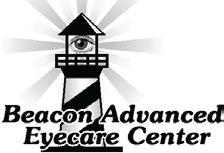








Questionable criticism of coffee continues to pour in.
 Story: Fred Hilton Illustration: Josh Clark
Story: Fred Hilton Illustration: Josh Clark
Have you seen Juan Valdez lately? Certainly, you remember Juan Valdez. He’s appeared in print and TV advertisements on behalf of Colombian coffee growers since the 1950s. Juan’s goal was to distinguish 100 percent Colombian coffee from coffee blended from several countries. Juan usually was accompanied by a mule that carried sacks of fresh coffee beans. (In case you’re ever a contestant on “Jeopardy,” the mule’s name is Conchita.)

Juan seems to have disappeared lately. One theory is that Juan is angry over all the nasty things people say about coffee and he’s gone into hiding in the mountains of Colombia— or the jungles or deserts of Colombia or wherever one hides in Colombia.
Discounting water, coffee is the most popular drink on Earth, but it still gets plenty of complaints. (Beer is only No. 4 on the top 10 list, but my friend Bubba is doing his part to move it up a notch or two.)
Coffee is berated over and over again. There was that old malarkey about coffee stunting children’s growth. And charges that coffee does terrible things to your digestive system. Coffee is always found innocent.
The latest criticism is that coffee raises your blood pressure. That’s true to an extent—but only briefly. “Caffeine can cause a short but dramatic increase in your blood pressure, even if you don’t have high blood pressure,” according to Dr. Sheldon G. Sheps of the Mayo Clinic. “It’s unclear what causes this spike in blood pressure,” he added.
Coffee is our biggest provider of caffeine, a psychoactive drug that stimulates the release of certain hormones in the
brain and gives us an energy “kick.” While drinking coffee does immediately cause an increase in your blood pressure, the effect typically lasts only for a maximum of three hours.
On the positive side, coffee is generally considered a health food and is linked to numerous health benefits. Many observational studies actually found that coffee consumption is linked to improved heart health.
We’re still left with the question of Juan Valdez’s location. Cartoonist Mike Peters may have given us the answer, though it resulted in the National Federation of Coffee Growers of Colombia threatening to sue him. (The suit was dropped when Mike apologized.) His cartoon strip, “Mother Goose & Grimm,” had a weeklong series making fun of commercial products. One of his characters said:
“Y’know, there’s a big crime syndicate in Colombia. So when they say there’s a little bit of Juan Valdez in every can, maybe they’re not kidding.”
Sources
“Caffeine: How does it affect blood pressure?” by Dr. Sheldon G. Sheps, Mayo Clinic, mayoclinic.org. https://www.mayoclinic.org/diseases-conditions/high-blood-pressure/expert-answers/blood-pressure/ faq-20058543
“Does Coffee Raise Blood Pressure? Time to Clarify the Confusion,” by staff dietician, Dec. 6, 2017, Diet vs. Disease.
https://www.dietvsdisease.org/does-coffee-raise-blood-pressure/
“Does Caffeine Increase Blood Pressure?” by Dr. Craig Weber, updated Dec. 22, 2017, verywellhealth. com.
https://www.verywellhealth.com/does-caffeine-increase-blood-pressure-1764070
“Caffeine’s Effect on Blood Pressure,” from WebMD archives, May 17, 2002.
https://www.webmd.com/hypertension-high-blood-pressure/news/20020517/caffeines-effect-on-bloodpressure#1

Man’s second best friend.

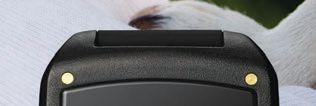
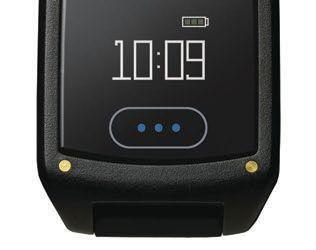










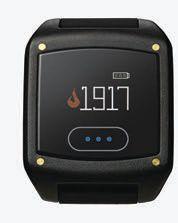
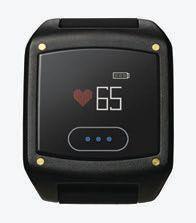

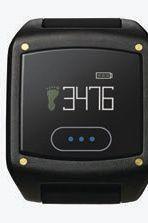
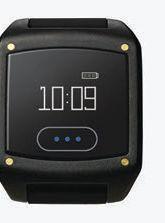

As men mature, the prostate grows from a walnut-sized gland to sometimes as large as an orange. This growth causes outflow problems from the bladder in the passing of urine, resulting in symptoms from a slow stream, getting up at night to urinate, or even worse—the constant urge to urinate, even to the point that urination begins before they reach the bathroom. These inconvenient, and often embarrassing symptoms, can be resolved by proper treatment of the enlarged prostate.
Dr. James Young is a very successful urologist who has been practicing in Lake County since 1982. “The treatment of BPH (an enlarged prostate) has always been my focus, and that is the primary reason I moved to Florida when I finished my medical training as Chief Resident of Urology at the University of Arkansas. I looked at Florida as being the largest ‘prostate ranch’ in the United States, so I began my practice from scratch in Eustis in 1982.”
For many decades, the only treatment for BPH was a surgical procedure, the TURP, more commonly referred to by men as a “roto-rooter.” Dr. Young performed more 3,000 of these procedures, however they were very invasive, required anesthesia, hospitalization, and could have serious complications, including massive bleeding and at times, death. Then medications were approved that relieved symptoms but after a period of time, the medications lose their effectiveness or caused side effects, usually sexual in nature. There had to be a better way.
In the late 1990’s a new procedure, transurethral
needle ablation of the prostate (TUNA) was approved by the FDA. “I was never a fan of jumping on new technology quickly because, as we know, not everything delivers the results as promised,” says Dr. Young. However, after the procedure was used for five years, Dr. Young began doing TUNAs, later known as Prostiva RF therapy. This procedure was done in the office under local anesthesia with few complications. The procedure worked by inserting wires into the prostate, then low frequency radio waves were transmitted through the wires and heated prostate tissue to 115 degrees Celsius. This heat was transmitted in a conductive manner (radiate from the wires) but the heat dissipated rapidly as it traveled away from the wires. The heat was reduced by the formula of 1/r2 with r being the distance from the wires. Basically, cores of prostate tissue surrounding the wires were destroyed. Dr. Young had tremendous success with Prostiva RF therapy and ultimately did almost 3,000 procedures. His success with Prostiva gave him the distinction of being placed on
Castle Connelly’s Top Docs list for five consecutive years.
However, more than five years ago, Dr. Young heard rumors of a new technology that was similar in some ways, but completely different in others. This new therapy was FDA approved in 2015 and was known as Rezum. “Even though I have a reputation for not jumping on new technology, I completely understood the science behind Rezum, so as soon as it was available to me, I switched to this procedure immediately.
The science driving this technology is fascinating. Using low frequency radio waves, water is transformed into steam and then nine seconds of steam is infiltrated into the prostate tissue, once again in the office under local anesthesia. The major difference is the heat is transferred in a convective, as opposed to conductive manner.
As Einstein said, “Energy cannot be created or destroyed, it can only be changed.” So once the steam is infiltrated into the prostate, and returns to liquid, it releases all the energy that changed the water into steam. This is a tremendous amount of energy and destroys much
more prostate tissue than the conductive heat did conveyed by Prostiva. There is much less discomfort with Rezum and when patients leave the office (usually in under 30 minutes), they experience no pain what so ever.
Since June 2016, Dr. Young has performed just under 300 Rezum procedures, almost twice as many as any other urologist in the United States and many, many more than any other urologists in the state of Florida. “The results have been so amazing and the patients have been so happy that Healthgrades.com notified me that based on my recent reviews and clicks on my site, I am now ranked in the top 100th percentile of all urologists in the United States. While I am very proud of that, it is also very humbling. I personally think this is biggest leap forward in the treatment of BPH that I will see in my lifetime.”
JAMES W. YOUNG III, M.D. Board-certified UrologistPracticing in Lake County since 1982 with extensive experience in evaluation and management of prostate problems.


If you are a fi of Dr. Young, you will receive a detailed examination.



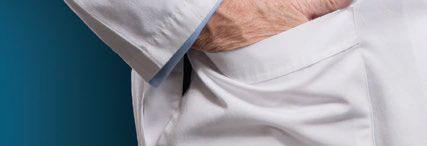

“When I see a new patient I perform physical examinations and properly evaluate the patient’s symptoms, thus diagnosing the underlying problem(s),” Dr. Young said. “Next, I describe to the patient what’s normal and then explain what is abnormal with him. Lastly, I teach him his treatment options. If I’ve done a good job of teaching, he will select the correct option for himself.”
While prescribing medications for enlarged prostate can be done by primary care physicians, only urologists are trained to thoroughly evaluate the bladder and prostate (including ruling out prostate cancer), as well as providing extremely effective minimally invasive, offi as alternatives to lifelong medical therapy.







With an offi nearly as much experience as




the doctor (many have worked with Dr. Young for 25 years), you don’t spend a great deal of time waiting to see him.

“We pride ourselves in being timely in seeing our patients. We respect our patients’ time as much as we do our own. Patients appreciate this; many of our patients tell me I have the best office staff on the planet. I consider that a huge compliment.”
So if you are waking up at night and have difficulty falling back asleep because you’re worried what may be wrong, then it is time to check in with Dr. Young and have him examine you.
“Many men accept frequent bladder urges as part of aging. And while it is part of the aging process, it’s not like death and taxes. There is something you can do

Some diseases may not be curable, but with a positive, can-do attitude, patients still derive plenty of joy from life.
Story: James Combs

or some, life may seem to end the moment they’re diagnosed with a terrible disease such as cancer, AIDS, or heart disease. Others, though, have an uncanny ability to buffer negative feelings by keeping life’s tragedies from spoiling the good stuff.

Healthy Living was fortunate to find three such people. Despite enduring Parkinson’s disease, cancer, and multiple sclerosis, they continue to see silver linings rather than give into hopelessness and despair.
They’re living proof that the power of positive attitude helps patients with chronic illness live life rather than merely exist.




For Steve Gaines, falling out of his wheelchair from leaning too far forward or trying to maneuver down steps is no big deal.
“If I’m not bleeding and I’m not hurt, then what else can I really do but laugh about the accident?”



Laughter has been a valuable tool in helping Steve, a resident of The Villages, to successfully navigate life with multiple sclerosis. For him, the disease has become progressively worse since he was diagnosed in 1995.


When he moved to The Villages in 2002, he could still play golf six times a week. Today, he is ned to a wheelchair, has no use of his left arm and left leg, and requires assistance for mundane tasks like taking a shower or entering and exiting a vehicle. But there’s no time for throwing daily self-pity parties. Instead, Steve chooses to be an eternal optimist. “There’s no reason not to be excited about life,” he says. “I’m happy with each new day, and I have a wonderful caregiver and group of friends.”
The caregiver is his wife, Barbara, and his group of friends comes from the Multiple Sclerosis Village People, a 185-member group designed to support both patients and their caregivers. Steve and Barbara joined the group 13 years ago.
Members enjoy occasional outings that include visiting Orlando theme parks and dining at local restaurants. ts of the group are twofold. It allows Steve to forge strong friendships and serves as a reminder that he is not alone in
“Those of us in the group are upbeat and try to live our lives the best we can,” he says. “Plus, some people in the group live with daily pain, and I’m fortunate that I have no pain. Why be depressed when there are others worse off than you? It makes me learn how to be


He’s equally thankful for the wealth of opportunities available in The Villages. Each Wednesday is poker night with a group of neighborhood friends, while Fridays are reserved for card games at Laurel Manor Recreation Center.
“Playing cards allows me to get out of the house and be a normal guy,” he says. “There are plenty of things to do here, and if I just sit in the house it’s my own fault.”
Knowing Steve is participating in those activities is comforting to Barbara, his wife of 37 years.

“I don’t have to worry about him not having a good life,” she says. “When he’s playing cards, I can enjoy mah-jongg and scrapbooking. This is an inconvenient disease, but we do our best to work around it.”



“Why be depressed when there are others worse off than you? It makes me learn how to be more thankful.”

Parkinson’s disease casts a dark shadow, but as a caregiver, Ed Baxter makes it a thin veil.



Ed sees right past the disease that leaves his wife, Anna, with limited mobility and persistent fatigue. His eyes instead penetrate right to her heart, a constant reminder that she’s a fully alive human being.
Life has been a wild ride since Anna was diagnosed in 2003, but the Baxters
do not allow the disease to always steer their lives. In fact, the Leesburg couple, who married in 1994, continue to travel, attend Sunday church services, dine out once a month, and go to Southern gospel concerts.


“It’s nice to get out of the house and get away when we’re able to,” Ed says. “We don’t let the disease control our lives all the time. We make sure we can do things that we like doing as a couple. But I always remind her that if and when she doesn’t feel like doing things, we’ll scale back or not do them at all.”
While he maintains an upbeat attitude, Ed does not downplay the reality of his wife’s life-limiting condition. Anna suffers from loss of balance, cognitive dysfunction, and lack of stamina. A “pill alarm” goes off periodically to remind Anna to take one of her eight daily pills.




“The disease is progressive,” Anna says. “Every year there’s something I can no longer do that I could do the year before.”

Fortunately for Anna, traveling is not one of them. In fact, the Baxters spent several days in June seeing the picturesque sites at Colorado’s popular Estes Park. Two months prior to that, they visited both the Ark Encounter and Creation Museum in Kentucky.
“When we were in Kentucky, I called ahead to secure a wheelchair, and I ended up pushing her around the facilities,” Ed says.
One of Anna’s favorite destinations is Siesta Key, where the couple enjoys an annual beach getaway in July. A beach wheelchair with large wheels allows her to soak up some rays.
“Whenever I’m at the beach, I feel like I’m home,” says Anna, a Sumter County native who spent 38 years as a teacher and guidance counselor.
When Anna is not traveling, she finds inner peace by helping others cope with life challenges.
“God is in control and has a purpose for everything,” she says. “I’m always looking for opportunities to encourage and minister people going through something similar. The Lord can use you to do good things even if you’re not 100 percent physically or mentally.”
BAXTER
“The disease is progressive. Every year there’s something I can no longer do that I could do the year before.”
Never give up and never lose hope.
That was the lesson Jim Boliek learned when he watched a dear friend valiantly battle cancer. The friend, Randy Jones, had melanoma and was given six months to live. He survived for five years before succumbing to the disease in 2011.

“Randy never once lost his faith in God,” says Jim, a resident of Fruitland Park. “What a great witness to God he was. I have a short hero list and he’s on it. I told myself then, ‘If I ever come down with a disease, I hope I’m just like Randy was.’”
That opportunity came in November 2017 when Jim was diagnosed with gastrointestinal stromal tumor (GIST), the most common type of sarcoma of the gastrointestinal tract. He would need to muster every bit of faith he could to survive what has been an emotional roller-coaster ride with cancer.
He was misdiagnosed on two occasions—first with nonHodgkin’s lymphoma and then stomach cancer. Then, a scheduled surgery was halted in the middle of the procedure when the surgeon realized Jim’s tumor was much larger than expected. The operation left him reeling.
“I had very little appetite and lost 25 pounds,” he says. “I couldn’t even get up the stairs in my home without help from my wife, Linda. My energy level was low, and I just wanted to sit in the chair. That was my refuge.”

A second surgery was scheduled at University of Florida Health Shands Hospital in Gainesville. However, it was canceled when oncologists determined he had GIST rather than stomach cancer. That turned out to be a godsend.

“Had I gone through that surgery, I probably would’ve had my stomach and the lower part of my esophagus removed,” he says.


Today, Jim is taking a pill designed to specifi melanoma. He feels “as close to normal” as he has in many months. And despite the ups and downs of his cancer battle, he has never wavered in his faith. That—and the power of prayer—has helped him get through tough and confusing times.
“I have people in fi praying for me and a wonderful support group that includes my immediate family, church family, and extended family I don’t know,” says Jim, a member of Heritage Community Church in Fruitland Park. “Will I be disappointed if I’m not healed? You better believe it. But will I keep my faith and trust in God? You better believe that, too.”

Jim hopes his cancer battle can positively impact others just as Randy’s battle affected him.

“If I come in contact with 1,000 people and only one reaches out to Jesus Christ as his or her savior, then having cancer was all worth it.”
JIM BOLIEK
“Will I be disappointed if I’m not healed? You better believe it. But will I keep my faith and trust in God? You better believe that, too.”













Don’t let the sun hound your eyes – protect them with impeccable summer styles and save! Just in time for the season, get your paws on a pair of hot, top-name designer sunglasses, including specialty and prescription lenses, and get a second pair of equal or lesser value for 25% off. How doggone sweet is that?



But don’t drag your heels – a sale of this breeding ends August 31st.











A Villages neurologist touts progress in treatment and envisions a promising future.
Parkinson’s disease, multiple sclerosis, ALS (Lou Gehrig’s disease), and lupus are conditions that affect a patient’s quality of life. However, a Villages neurologist says these diseases can be properly managed with treatment, medication, counseling, healthy diet, positive attitude, and support from the patient’s family and physician.
“The neurology field has become very dynamic with much rapid advances emerging,” says Dr. Tarek Bakdash, board-certified in neurology, neurophysiology, and psychiatry. He practices exclusively in The Villages, where he specializes in diagnosing and treating injuries and diseases that affect the human nervous system (brain, spinal cord, and nerves).
Dr. Bakdash says he’s pleased by the increase in medications in the past two decades to help patients best live with Parkinson’s, MS, and other diseases, and he believes the therapies and treatments are only going to get better.
“Twenty years ago, we didn’t have as much medication and the life expectancy was not that long,” he says, proudly adding that now some of his patients have been surviving with chronic diseases for years. His oldest patient is 97.
“The future is promising,” Dr. Bakdash adds. “We are getting closer to finding the underlying cause of many of the conditions. I envision that in the next 20 years, by God’s will, we should see a cure for many of the conditions, and that is my hope.” In the meantime, he believes it’s vital for patients to work with their physician and other health-care professionals to become informed about their disease and learn ways to best manage symptoms.




“We do see a lot more patients with Parkinson’s disease, and we are dealing with the elderly population,” says Dr. Bakdash, who notes patients often have issues with walking, speech, coordination, and swallowing.
Parkinson’s is a progressive disorder that predominately affects the breakdown of the dopamine-producing neurons in the brain, and symptoms often develop slowly over a period of years, according to parkinson.org. Symptoms range from tremors in one hand (the most well-known sign), to rigidity, clumsy leg, decreased blinking, speech abnormalities, stooped posture, and loss of balance. In severe stages of Parkinson’s, patients may be unable to walk or stand without assistance.
Symptoms can worsen over time, yet health-care officials say the earlier a patient is diagnosed, the more effective treatment can be at alleviating symptoms.



As a chronic illness of the central nervous system, multiple sclerosis is an “unpredictable, often disabling disease that disrupts the flow of information within the brain, and between the brain and body,” according to nationalmssociety.org.
The damaged areas develop scar tissue, which gives the disease its name—multiple areas of scarring or multiple sclerosis—and scientists believe MS is triggered by the combination of genetic susceptibility, abnormalities in the immune system, and environmental factors. Most people with MS are diagnosed between the ages of 20 and 50, and the disease is reportedly more common in women than in men.
LUPUS
A chronic autoimmune disease, lupus can cause inflammation, pain, and damage anywhere on a person’s body: skin, joints, and/or organs, according to lupus.org. Lupus is the result of something going wrong with the immune system’s ability to fight off viruses, bacteria, and germs.
“We deal with the neurological aspect of the disease,” says Dr. Bakdash, who notes lupus can affect a patient’s brain “and they might have issues with cognitive impairment, and this is when the patient comes to us.”
Most patients who develop lupus are in the 15-44 age range. They’re often women of child-bearing age, and women of color are reportedly two to three times more likely to develop lupus than Caucasians.


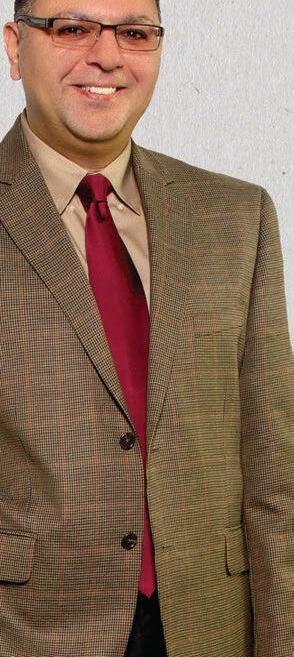











Amyotrophic lateral sclerosis is also referred to as Lou Gehrig’s disease, for the famous baseball player who had the progressive neurodegenerative disease. It affects nerve cells in the brain and the spinal cord, according to the ALS Association’s website, alsa.org, and causes the cells to gradually break down and die.
When the motor neurons die, the ability of the brain to initiate and control muscle movement is lost, and patients may lose the ability to speak, eat, move, and breathe. ALS often strikes patients between ages 40 and 70, and military veterans are reportedly twice as likely to be diagnosed.
Dr. Bakdash says he strives to make sure ALS is the right diagnosis before disclosing it, and to make sure nothing else can be cured.
“If I am certain it is ALS, I want the patient to get a second opinion,” he says. “A second opinion is going to give closure to the family with what we are dealing with and what we have to live with. There are certain conditions that the disclosure of that diagnosis is going to be detrimental, like ALS.”
ALS experts believe patients can experience a better quality of life by participating in support groups. Dr. Bakdash says learning to live with a chronic disease is the best way of managing it.

“We are here to help them find out what is the cause of the problem and how can we deal with it,” he says. “Living with the disease is number one and an important aspect of management. It requires counseling, education, support from the family, and the physician. Living with the disease also requires having treatment for the disease. The patient needs to know what he or she has and that the condition can be livable.”
He adds that it’s vital for patients with chronic diseases to integrate healthy behaviors into their lifestyle, such as eating a well-balanced diet and maintaining a positive attitude.
“A positive attitude enforces positive thinking,” Dr. Bakdash says. “Generally speaking, healthy eating habits is good for their well-being overall, and that is why we tell patients to have healthy eating habits of high antioxidants and vegetables. These are very important for the brain’s well-being, and the idea is to keep the brain’s functions healthy and the activities of the brain running smoothly.”
“The future is promising, we are getting closer to finding the underlying cause of many of the conditions. I envision that in the next 20 years, by God’s will, we should see a cure for many of the conditions, and that is my hope.”
—Dr. Tarek Bakdesh DR. TAREK BAKDASH








What if you develop sudden onset severe back pain, more unbearable than you ever imagined? If your pain is new or feels different from the chronic back pain you may already be experiencingwhich is currently being treated with exercise, pain medicines, and injections - it is recommended that you should visit your doctor or urgent care center immediately, because you may have a vertebral compression fracture in your spine. If you are able to pinpoint your pain with the touch of a finger to a specific vertebra, it is important to act quickly or it may become too late to repair it.
What is a compression fracture and why is time of the essence? A compression fracture is when a vertebrae cracks and becomes compressed or somewhat flatter than it was before the fracture. Think of an elderly person with a hunchback or curved spine. A hunchback, medically known as kyphosis, is often caused when the bones become frail and brittle from osteoporosis (loss of bone density) and the vertebrae begin to fracture one by one. As these vertebrae fracture, they become misshapen. The rectangular vertebrae become triangular or wedge-shaped, eventually creating a curve in the spine.

Once a vertebrae fractures it will heal on its own, but it takes several weeks or even months to do so, during which time the pain is often unbearable. In the past, doctors would put patients in a brace and prescribe medication, often in the form of narcotics, to help ease this pain. When



the compressed vertebrae heals on its own, it heals in its compressed state or compresses even further, sometimes flattening completely and reducing the height of the individual. At this point, nothing can be done to restore its integrity since the bone has hardened or scarred, making it impossible to fix.
Compression fractures can also be caused by an impact such as a fall, or from cancer which has metastasized to the spine. Unfortunately for many, a compression fracture can be a first indication of cancer, so do not ignore this sign - get a consultation immediately. If you had an X-ray, CT, or MRI indicating a compression fracture, insist that your physician acts quickly to refer you to a specialist for a kyphoplasty or vertebroplasty.
With a procedure called kyphoplasty, kyphosis can be a thing of the past! A Kyphoplasty procedure can stop pain instantly in over 95% of patients, as well as prevent further collapse of the vertebrae.
During the procedure, the physician uses image-guidance in the form of a C-ARM (which is a live X-ray) to obtain access and inject a plastic cement into the vertebrae to restore the integrity of the bone, often stopping pain completely and preventing further damage. The procedure is performed under conscious sedation and takes approximately 30 minutes under the expertise of an experienced specialist, such as an Interventional Radiologist. Although other specialists are now performing this procedure, an Interventional Radiologist should be your first choice, since they pioneered this procedure, and any imageguided procedure should always require a person trained in radiation safety.
Interventional Radiologists believe that limiting X-ray exposure to patients is crucial, which is something
often overlooked by other physicians. An Interventional Radiologist such as Dr. Mark Jacobson, uses a mere fraction of the typical radiation exposure used by other specialists, including other radiologists. An Interventional Radiologist also uses minimally invasive surgical techniques with the least number of punctures (usually one per vertebra) and the smallest needles possible, thereby enhancing safety and reducing healing and recovery times.
In the case where a compression fracture is caused by a cancerous lesion, an Interventional Radiologist can also biopsy the bone and perform a radiofrequency ablation to alleviate pain prior to the kyphoplasty (this is not a replacement for, but complimentary to radiation treatments, because if a patient is in less pain, the treatments can be tolerated better).
This is why it is imperative to understand that not just anyone should perform your kyphoplasty, but someone trained in identifying the difference between a simple fracture caused by osteoporosis, and a fracture caused from a possible cancerous lesion. A trained expert will be able to offer to you the best options available.
ABOUT DR. MARK JACOBSON Dr. Jacobson has performed nearly 1000 kyphoplasties in his Lady Lake
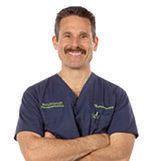
Radiology procedures performed in a
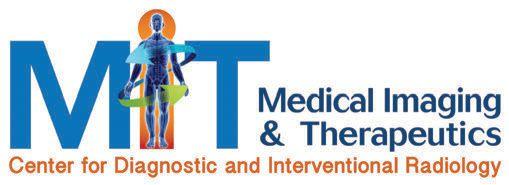








Whether it’s a chronic ilness or dealing with the death of a loved one, having the support of others can comfort.
Support groups are comprised of people who care for one another, and finding support when you need it is not difficult in this area. All the hospitals, many of the churches, and other groups provide help and hope for whatever your need may be. There are always others going through the same experiences, and just meeting them often helps.
For information on meetings and times in Lake and Sumter counties, see meetings. aalakesumter.com. For information on AA meetings in The Villages in zip code 32163, see betteraddictioncare.com
For information on AA meetings in Lady Lake, see betteraddictioncare.com/aa-meetingslady-lake-fl.
AA meetings in The Villages are also available at sober.com
District 6 serves Mount Dora, Tavares, Eustis, Leesburg, Lady Lake, The Villages, Oxford, and Wildwood. afgdistrict6.org has a list of meetings
District 6 AFG, P.O. Box 241, Oxford, FL 34484
Contact: Sheri D., drafgdistrict6@gmail.com
Amy P., altdrafgdistrict6@gmail.com
SCLERODERMA SUPPORT GROUP
Contact: 352.753.9500 or 352.409.0429
SJOGREN’S/RHEUMATOID ARTHRITIS
SUPPORT GROUP
La Hacienda Recreation Center, The Villages, Julio Iglesias Room
4th Friday, 10am (Oct.-May)
Contact: 352.259.1309
CROHN’S AND COLITIS SUPPORT GROUP
New Life Presbyterian Church
201 LaVista St., Fruitland Park
3rd Monday of odd-numbered months, 7pm
Contact: 248.840.7805
AIDS
CATHOLIC COMMUNITY OF ST. PAUL CHURCH AIDS MINISTRY
1330 Sunshine Ave., Leesburg
Services: Provides educational programs
upon request and referral services for those supportive services. Through this ministry, support groups are available for people infected with HIV and for parents of people living with AIDS or who have died from the disease. All age groups.
Contact: 352.787.6354
ALZHEIMER’S & DEMENTIA
SUPPORT GROUP
Leesburg Regional Medical Center
600 E. Dixie Ave., Leesburg
2nd Tuesday, Noon
Contact: Jenny Reynard, 800.272.3900
The Villages Regional Hospital, East Campus
1501 U.S. Highway 441 N., The Villages
4th Thursday, 2pm
Contact: Jenny Reynard, 800.272.3900
ALZHEIMER’S FAMILY ORGANIZATION
New Covenant United Methodist Church
3470 Woodridge Dr., The Villages
Every Thursday, 10am
Free respite care during meetings
Contact: Louise Shuey, 352.753.8262
Rochelle Holcombe, 352.259.1243
Leslie Switzer, 352.274.3673
Brookdale Place at Freedom Pointe
1700 El Camino Real, The Villages
2nd and 3rd Wednesday monthly Light lunch is served
Contact: Zullie Oliver, 352.674.3940 to RSVP
Sumter Place in The Villages
1550 Killingsworth Way, The Villages
Free respite care during meetings
3rd Wednesday, 1:30pm
Contact: Sheila Dickmann, 352.674.3500
Mission Oaks
10780 N. U.S. Highway 301, Oxford
2nd Monday, 2pm
Contact: Cheryl Fletcher, 352.409.5360
Lakeview Terrace
331 Raintree Drive, Altoona
2nd Thursday, 1:30pm
Contact: 352.409.5360
Clermont Arts & Recreation Center
3700 S. U.S. Highway 27, Clermont
1st and 3rd Tuesday, 4pm
Contact: Deb Smith, 352.449.9449
Lindsay Collins, 352.484.8420
North Lake Presbyterian Church
975 Rolling Acres Road, Lady Lake
3rd Wednesday, 1pm
Contact: Louise Shuey, 352.753.8262 Don Dati, 352.259.5363
Chapel of Christian Faith
1401 Paradise Drive, Lady Lake
3rd Thursday, 10am
Contact: Martha Hyatt, 352.748.7633
North Lake Presbyterian Church
Fellowship Center
930 County Road 466, Lady Lake
1st and 3rd Thursday, 1pm
Contact: Louise Shuey, 352.753.8262
Avante at Leesburg Nursing & Rehab Center
2000 Edgewood Ave., Leesburg
3rd Thursday, 1pm
Contact: Doreen Watson-Beard, 352.217.6476
Cooper Memorial Library
2525 Oakley Seaver Dr., Clermont
Last Tuesday monthly, 1:30pm
Contact: Heather Carelli, 352.901.0239
Selly Castillo, 352.801.1545
Lake Port Square, a Brookdale Community
800 Lake Port Blvd., Leesburg
4th Wednesday, 2pm
Contact: Allison Church 352.728.8525, ext. 1232
Regency Park Assisted
Living and Memory Care
15000 U.S. Highway 441, Eustis
2nd and 4th Wednesday, 2pm
Contact: Rick Wiggins, 352.661.9003
The Fellowship

25900 U.S. Highway 27, Leesburg
1st Monday, 2pm


Contact: Pamela Schmitz, 352.396.6927
Osprey Lodge Assisted Living & Memory Care
1761 Nightingale Lane, Tavares
1st Tuesday, 6pm, Early Stage Loved Ones
Contact: Rick Wiggins, 352.636.8517
Brookdale Clermont
650 E. Minnehaha Ave., Clermont
1st Wednesday, 4pm
Contact: Pam Schmitz, 352.396.6927
The Cove at Tavares Village
1501 Sunshine Parkway, Tavares
2nd Monday, 1:30pm
Contact: Amy Lesner, 352.250.2602
Elan Senior Living at Spanish Springs
930 Alverez Ave., The Villages
2nd Wednesday, 2pm
Contact: Cathy Jackshaw, 352.300.1089
ALZHEIMER’S FAMILY ORGANIZATION SUPPORT GROUP
Bridgewater at Waterman Village
500 Waterman Ave., Mount Dora
3rd Wednesday, 1:30pm
Free respite care provided during
Contact: Alan Jones, chaplain, 352383-0051, ext. 285
Cooper Memorial Library
2525 Oakley Seaver Dr., Room 108-B, Clermont
3rd Thursday, 2 p.m.
Contact: Deborah Snow, 352-406-8465
Carol McCarthy, 352-454-8303
First Baptist Church UMATILLA, Adult Annex
One Thursday a month at 10 a.m. Please call for further information.
Contact: Vicki Rogers, 352-669-3622
Avante at Leesburg Nursing & Rehab Center
2000 Edgewood Ave., Leesburg
3rd Tuesday, 1pm
RSVP for free respite care provided during meeting
Contact: Doreen Watson-Beard, 352.217.6476
Home Companions Senior Care
2785 S. Bay St., Suite D, Eustis
4th Tuesday, 2:30pm
Contact: Kellie Keith, 352.483.3086
Interim Health Care
9738 U.S. Highway 441, Ste. 103, Leesburg
4th Tuesday, 1pm
Contact: Sheryl Root, 352.326.0400
Lake Harris Healthcare
Lake Port Square: Lakeside West Building
821 Lake Port Blvd., Leesburg
2nd Friday, 2pm Free respite care provided during meetings
Southpointe Baptist Fellowship
25900 U.S. Highway 27, Leesburg
1st Monday, 10am
Contact: Pamela Schmitz, 352.396.6927
Christen Wilson, 352.638.0804
Springs of Lady Lake Assisted Living Community
2nd Tuesday, 10am
Contact: Julie Watson, 352.396.3911
St. Timothy Catholic Church
1351 Paige Place, Lady Lake
4th Friday, 1pm
Contact: Pam Gilhooly, 352.205.7121
Sterling House
700 South Lake St., Leesburg
3rd Thursday, 2pm
Free respite care provided at meeting
352.728.6661



Superior Residence of Clermont ALF
1600 Hunt Trace Blvd., Clermont
1st Monday, 3pm


352.394.5549

United Congregational Church
302 N. St. Clair Abrams Ave., Tavares
2nd Wednesday, noon
North Campus Rehab and Nursing Center
700 N. Palmetto St., Leesburg
2nd Wednesday, 2pm
Contact: Cheryl Fletcher 352.409.5360
Somerset Assisted Living Facility
2450 Dora Ave., Tavares
2nd and 4th Friday, 2pm
Free respite care provided during meetings
Contact: Betty Lee, 352.638.5394
Toni O’Donnell, 352.343.6483
Lori Wintersdorf, 352.267.4205 ALS
ALS ASSOCIATION
FLORIDA CHAPTER
Hibiscus Recreation Center
1740 Bailey Trail, The Villages
4th Wednesday, 1pm
Contact: 888.257.1717 or alsafl.org
BREATHING
AMERICAN LUNG ASSOCIATION BETTER BREATHERS
National Training Center, Education Dept.
1935 Don Wickham Dr., Clermont 1pm (call for information)
Contact: 352.241.7109
BETTER BREATHERS
South Lake Hospital
Education Department
1099 Citrus Tower Blvd., Clermont
2nd Tuesday, 1pm (Oct.-May)
Contact: Susan Harwood, 352.200.7096
BETTER BREATHERS
Florida Hospital Waterman
Garden Conference Room
1000 Waterman Way, Tavares
3rd Wednesday, 1:30pm
Contact: Karen Bradner, 352.253.3396
BETTER BREATHERS
SUPPORT GROUP
Good Life Emporium
Lake Square Mall
10401 U.S. Highway 441, Leesburg
3rd Wednesday, 1pm
Contact: Erik Blamick, 352.589.3396
CANCER
TRI-COUNTY BREAST
CANCER SUPPORT GROUP
Outpatient Surgery Center
4th Thursday, 2pm
U.S. Highway 27/441 (Doctor’s Drive), The Villages
Contact: 352.259.9876
Sharon Morse Medical Center
1400 N. U.S. Highway 441,
The Villages
3rd Thursday, 2pm
Contact: 352.347.2806, 352.307.9797
BREAST CANCER EDUCATION
SUPPORT GROUP
Florida Hospital Waterman
1000 Waterman Way, Tavares
Last Monday of month, 4pm
Contact: Jan Whitis, 352.253.3610
BREAST CANCER
SUPPORT GROUP
South Lake Hospital
National Training Center
1935 Wickham Dr., Clermont
2nd Friday, 7pm


Contact: 352.241.7109
BREAST CANCER
SUPPORT GROUP
National Training Center
1935 Wickham Dr., Clermont
2nd Thursday
Contact: 352.435.3202
GENERAL CANCER EDUCATION
SUPPORT GROUP
Florida Hospital Cancer Institute
Conference Room
4000 Waterman Way, Tavares
1st Thursday, 1:30pm
Contact: Laytanya Ruiz, 352.253.3605
BREAST CANCER
SUPPORT GROUP
Florida Hospital Cancer Institute
Conference Room
4000 Waterman Way, Tavares
3rd Thursday, 1:30pm
Contact: Laytanya Ruiz, 352.253.3605
LOOK GOOD, FEEL BETTER
WOMEN UNDERGOING
CHEMOTHERAPY
Florida Hospital Cancer Institute
Conference Room
4000 Waterman Way, Tavares
2nd Monday, 1:30pm
Contact: Laytanya Ruiz, 352.253.3605
MEN’S HUDDLE CANCER
SUPPORT GROUP
MALE CANCER SURVIVORS
Florida Hospital Cancer Institute
Conference Room
4000 Waterman Way, Tavares
4th Thursday, lunch served at noon
Contact: Laytanya Ruiz, 352.253.3605
CANCER SUPPORT GROUP
First United Methodist Church
927 7th Ave. at the Agape House, Clermont
2nd Tuesday of month
Contact: 352.394.8401
GREATER CLERMONT CANCER FOUNDATION SUPPORT GROUP
First United Methodist Church
927 7th Ave. at the Agape House, Clermont
Various dates and times
Contact: 352.435.3202
YOUNG WOMEN SURVIVING CANCER
First United Methodist Church
927 7th Ave. at the Agape House, Clermont
2nd Monday, 7pm


Contact: Heather, 352.243.7900
AMERICAN CANCER SOCIETY LOOK GOOD…FEEL GOOD SUPPORT GROUP
InterCommunity Cancer Center
1120 Citrus Tower Blvd., Ste. 130, Clermont
1st Monday, April, June, Aug., Oct.,
1pm





Contact: 800.227.2345
ONE ON ONE MAN TO MAN PROSTATE CANCER PHONE SUPPORT 24/7
Florida Hospital Waterman
1000 Waterman Way, Tavares
Contact: 800.227.2345
MAN TO MAN CANCER EDUCATIONAL SUPPORT GROUP
Florida Hospital Waterman
1000 Waterman Way, Tavares
3rd Thursday, 3pm
Contact: Fred Neilson
fredneilson@aol.com
AMERICAN CANCER SOCIETY LOOK GOOD…FEEL BETTER SUPPORT GROUP
Florida Hospital Cancer Institute
Female patients undergoing chemotherapy or radiation Register a week before attending.
4000 Waterman Way, Tavares
2nd Monday, 1:30pm
Contact: 800.277.2345
MULTIPLE MYELOMA
Laurel Manor Recreation Center
1985 Laurel Manor Drive, The Villages
1st Tuesday, 1pm
Contact: Dan List, 352.259.9435
THE VILLAGES PROSTATE CANCER EDUCATION AND SUPPORT GROUP
Laurel Manor Recreation Center
1985 Laurel Manor Dr., The Villages
1st Wednesday, 7pm
Contact: 352.259.9433 or 352.259.1329
OSTOMY SUPPORT GROUP
Chula Vista Recreation Center
1011 Rio Grande Ave., The Villages
2nd Tuesday, 6pm (Sept.-May)
Contact: 865.335.6330
CAREGIVERS
ALZHEIMER’S CAREGIVER SUPPORT GROUP
New Covenant United Methodist Church
3470 Woodridge Dr., The Villages Thursdays, 10am
Respite care provided for meetings. Contact: Rochelle Holcombe, 352.249.1243
CAREGIVER SUPPORT GROUP
Lexington Park
930 County Road 466, Lady Lake
1st Wednesday, 10am
Contact: Carol McCarthy, 352.454.8303
CAREGIVERS SUPPORT GROUP NEWLY DIAGNOSED ALZHEIMER’S PATIENTS
Cooper Memorial Library
2525 Oakley Seaver Dr., Room 108-B, Clermont
3rd Thursday, 2pm
Contact: Deborah Snow, 352.406.8465 Carol McCarthy, 352.454.8303
STROKE CAREGIVER
SUPPORT GROUP
Counseling & Development Center
101 E. Maud St., Tavares
Meets monthly—call for dates


Contact: Dr. Karen Estill, 352.253.9348
CAREGIVERS FOR PARKINSON’S SUPPORT GROUP
Lady Lake Public Library
225 W. Guava St., Lady Lake
1st Monday, 2:30pm
Contact: Judy Brown, 352.391.1222
WOMEN’S PARKINSON’S CAREGIVER SUPPORT GROUP
Tierra Del Sol Recreation Center
808 San Marino Dr., The Villages
Monday, 8:30am
Contact: 919.699.8362
CAREGIVERS SUPPORT GROUP FOR ALS SUFFERERS
Hibiscus Village Center 1740 Bailey Trail, Lady Lake
Last Wednesday, 1pm
Contact: Rhonda Rittenhouse, 888.257.1717
CARING FOR THE CAREGIVERS (ALL TYPES)
Dayspring Village
2725 Robie Ave., Mount Dora
1st and 3rd Mondays, 7pm
Contact: Ruth Blake, 352.383.3310
CAREGIVERS SUPPORT GROUP
Dayspring Village
Sharing tips, insights, and info
2725 Robie Ave., Mount Dora
2nd and 4th Tuesdays, 1pm
Contact: Ruth Blake, 352.383.3310
ALZHEIMER’S ASSOCIATION
CAREGIVER COLLEGE
Mulberry Grove Recreation Center
8445 SE 165th Mulberry Lane, The Villages
1st and 3rd Tuesdays, 1:30pm
Contact: 321.972.8867
MULTIPLE SCLEROSIS
VILLAGE PEOPLE CAREGIVERS
La Hacienda Recreation Center
1200 Avenida Central, The Villages
4th Tuesday, 10:30am
Contact: 352.391.9707
COPD
COPD “AIRHEADS”
SUPPORT GROUP
Mulberry Grove Recreation Center
8445 SE 165th Mulberry Lane, The Villages
2nd Tuesday, 10am
Contact: 352.206.7874
COPD “AIRHEADS”
SUPPORT GROUP
Rohan Recreation Center
Lake Miona Room
850 Kristine Way, The Villages
4th Tuesday, 10am
Contact: 352.205.7874
COPD BREATHING AND EXERCISE CLASS
Mulberry Grove Recreation Center
Old Glory Room
8445 SE 165th Mulberry Lane, The Villages
1st Friday, 10am
Contact: 352.205.7874
COPD BREATHING AND EXERCISE CLASS
Rohan Recreation Center
Lake Miona Room
850 Kristine Way, The Villages
3rd Friday, 10am
Contact: 352.205.7874
DEAF AND HARD-OF-HEARING
SOCIAL TIMES GROUP
Churchill Street Recreation Center
* Communicate via sign language only
2375 Churchill Downs, The Villages
1st Wednesday, 6pm
Contact: 352.399.0711
HEARING LOSS ASSOCIATION OF AMERICA
Churchhill Street Recreation Center
Triple Crown Room
2375 Churchill Downs, The Villages
1st Tuesday, 1pm
Contact: 352.751.7599
DEMENTIA
DEMENTIA CAREGIVERS
SUPPORT GROUP
Avante at Mount Dora Nursing and Rehab Center
30501 Brown Ave., Mount Dora
1st Wednesday, 2pm
Contact Cheryl Fletcher, 352.383.4161
DEPRESSION
DEPRESSION

SUPPORT GROUP
Lake Miona Recreation Center
1526 Buena Vista Blvd., The Villages
1st and 3rd Tuesdays, 7pm
Contact: thevillagesdsg@gmail.com
DIABETES
PUBLIC PHARMACY
DIABETES MANAGEMENT
South Lake Hospital
847 8th St., Clermont
Contact: 407.237.6330
DIABETES PERFECT CONTROL
Sea Breeze Recreation Center
2384 Buena Vista Blvd., The Villages
Fridays, 10am-noon; Saturdays, 3-5pm
Contact: 352.430.0098
DIABETIC COMMUNITY
SUPPORT CLUB
Savannah Recreation Center
1545 Buena Vista Blvd., The Villages
1st Thursday, 1pm
Contact: 352.751.7599 or dickbright@ prodign.net
DIVORCE
DIVORCE CARE
SUPPORT GROUP
First Baptist Church
1000 E. 1st Ave., Mount Dora
Sundays, 5pm
Contact: 352.385.2222
First Baptist Church
3551 East Orange Ave., Eustis
Call for information
Contact: 352.357.5640
EMOTIONS
EMOTIONS ANONYMOUS SUPPORT GROUP
Call for more information
Contact: Mickey S., 352.394.0858
FIBROMYALGIA
FIBROMYALGIA
SUPPORT COMMUNITY
Truman Recreation Center
2705 Canal St., The Villages
3rd Wednesday, 3:30pm
Contact: 352.633.0313
GRIEF
GRIEF SHARE PROGRAM
New Covenant United Methodist Church
(Begins 9/10/18)





3470 Woodridge Drive, The Villages
352.750.4529

GRIEF SHARE PROGRAM
First United Methodist Church
600 S. Grove St., Eustis
1st and 3rd Thursdays, 10:30am
Contact: Rev. Ruth, 352.357.0996
Betsy, 352.483.3638
GRIEF SHARE PROGRAM
First United Methodist Church
600 W. Ianthe St., Tavares
Monday, 3:30pm, $15 for workbook
Contact: Betty, 352.308.8229
GRIEF SHARE
SUPPORT GROUP
Adventure Christian Church
3800 U.S. Highway 19, Tavares
Sundays, 1:30pm
Contact: 352-343-9020
GRIEF SHARE REAL FREEDOM
SUPPORT GROUP
Real Life Christian Church
1501 Steve’s Road, Clermont
Tuesdays, 7pm
Contact: 352.394.3553
GRIEF SHARE
SUPPORT GROUP
Fairway Christian Church
251 Avenida Los Angelos, Room C/D, The Villages
Wednesday, 2pm





Contact: 352.259.9305
GRIEF SHARE
SUPPORT GROUP
Adventure Christian Church
3701 N. Eichelberger Road, Tavares
13-week program that meets twice a year
Call for more information
Contact: 352.343.9020
GRIEF SUPPORT GROUP
First Presbyterian Church
117 S. Center St., Eustis
Sunday, 3pm
Contact: fpceustis.com
GRIEF SUPPORT
Florida Hospital Waterman
1000 Waterman Way, Tavares
Contact: 352.253.3389
CORNERSTONE HOSPICE
COMMUNITY BEREAVEMENT
Adults and children
Camp Bridges for children
Camp Adventure for teenagers
Contact: Bereavement Department, 888.728.6234
ONLINEGRIEFSUPPORT.COM



Created by Diana Young, Tavares
More than 14,000 members
Includes chats, blog, journals, photos
COMPASSIONATE FRIENDS
MEETING FOR PARENTS WHO LOST A CHILD
Trinity Lutheran Church 17330 U. S. Highway 27,
3rd Tuesday, 7pm
Contact: 352.307.4500
BEREAVEMENT GROUP
Trinity Lutheran Church
1st and 3rd Monday, 10am
Contact: Rita Luciano, 352.245.3975
GRIEVING SUPPORT GROUP
Hospice of Lake/Sumter
117 S. Center St., Eustis
Meets three times monthly
Contact: Tom, 352.357.2833
GRIEF SHARE SUPPORT
GROUP PEOPLE HELPERS
MINISTRY
First Baptist Church
1309 High St., Bldg. 104, Leesburg
13-week program held throughout the year
Call for class schedule or to register
Contact: Karen Gardiner, 352.787.1005
BEREAVEMENT SUPPORT FOR PET LOSS
Cornerstone Hospice & Palliative Care
2445 Lane Park Road, Tavares
Wednesday, 10am
Contact: 352.752.6812
LIVE AGAIN
First United Methodist Church
600 South Grove St., Eustis
1st and 3rd Thursday, 10:30am
Contact: 239.791.7560
HEART
WOMEN HEART
Sharon L. Morse Building, Room 520
1400 U.S. Highway 441 N., The Villages
3rd Wednesday, 3:30pm
Contact: Sue Prince, 240.271.9292
CONGESTIVE HEART FAILURE SUPPORT GROUP
Bacall Recreation Center
2041 Canal St., The Villages
1st Tuesday, 11am
Contact: 352.272.2326
MENDED HEARTS SUPPORT GROUP
Leesburg Regional Medical Center
600 E. Dixie Ave., Leesburg
2nd Tuesday, 10am
Contact: 352.323.5640
MISCELLANEOUS

MENTAL ILLNESS FAMILY TO FAMILY SUPPORT GROUP
National Training Center
1935 Wickham Dr., Clermont
7pm; call for more information
Contact: 352.989.2601
NATIONAL ALLIANCE ON MENTAL ILLNESS LAKESUMTER CONSUMER
AWARENESS GROUP
Lifestream AIMS Bldg.
404 Webster St., Leesburg
1st Wednesday, 7pm
Contact: Claire Hedgcock, 352.406.8695 or 352.787.1232
MOM’S MORNING OUT
South Lake Hospital
Center for Women’s Health
For moms with newborns-4 months
1900 Don Wickham Dr., Clermont
Wednesdays, 10am; Cost: $5
Contact: 352.241.7109
KIDNEY SUPPORT GROUP
Laurel Manor Recreation Center
Jefferson Room
1985 Laurel Manor Dr., The Villages
2nd Friday, 3:45pm
Contact 203.206.6056 or 352.259.7040
LUPUS SUPPORT GROUP
National Training Center
1935 Wickham Dr., Clermont
Noon; call for more information
Contact: 352.394.4210
PARENTS IN THE HOME
Hibiscus Recreation Center
1740 Bailey Trail, The Villages
4th Tuesday, 2:30pm
Contact: 352.396.1679
POWER OVER POLIO
Sea Breeze Recreation Center
2384 Buena Vista Blvd., The Villages
2nd Friday, 1pm (Oct.-May)
Contact: 352.249.2051
THE VILLAGES SLEEP APNEA
SUPPORT GROUP
Bridgeport Recreation Center
1670 Lake Miona Drive, The Villages
2nd Monday, 6:30pm (Sept.-May)
Contact: 352.753.8773
SPASMODIC TORTICOLLIS/ CERVICAL DYSTONIA
SUPPORT GROUP
Sea Breeze Recreation Center
2384 Buena Vista Blvd., The Villages
2nd Friday (call for time)
Contact: 352.751.7392
WATERMAN AMPUTEE & LIMB
LOSS KONNECTIONS (WALK)
Florida Hospital Waterman
1000 Waterman Way, Tavares
4th Monday, 6pm
Contact: Tracey Estok, 352.253.3892
VASCULITIES FOUNDATION
Villages Chapter Mulberry Grove Recreation Center
8445 SE 165th Mulberry Lane, The Villages
1st Saturday, 1pm, Feb., May,
Aug., Nov.
Contact: 352.328.2839
VERTIGO SUPPORT GROUP
Chula Vista Recreation Center
1011 Rio Grande Ave., The Villages
4th Tuesday, 7pm (Oct.-April)
Contact: 231.328.2839
VISUALLY IMPAIRED PERSONS SUPPORT GROUP
Bridgeport Recreation Center
1670 Lake Miona Dr., The Villages
1st Thursday, 1pm
Contact: 352.751.1322
MULTIPLE SCLEROSIS
MULTIPLE SCLEROSIS SUPPORT GROUP
South Lake Hospital National Training Center
1935 Wickham Dr., Clermont
3rd Wednesday, noon
Contact: 352.241.7109
MULTIPLE SCLEROSIS VILLAGES PEOPLE
La Hacienda Recreation Center
1200 Avenida Central, The Villages
3rd Tuesday, 10am
Contact: 352.391.9707
NUTRITION AND DIET
OVEREATERS ANONYMOUS
Colony Cottage Recreation Center
510 Colony Blvd., The Villages
Tuesday, 4:30pm
Contact: 352.751.2614
OVEREATERS ANONYMOUS USING STEPS
Hibiscus Recreation Center
1740 Bailey Trail, The Villages
Saturday, 10am
Contact: 352.430.2383
OVEREATERS ANONYMOUS BEGINNERS
Hibiscus Recreation Center
1740 Bailey Trail, The Villages
Saturday, 8:30am
Contact: 352.430.2327
OVEREATERS ANONYMOUS
Chatham Recreation Center 7415 SE 172nd Legacy Lane, The Villages
Tuesdays, 10am
Contact: 352.430.2383
OVEREATERS ANONYMOUS
Moyer Recreation Center
3000 Moyer Loop, The Villages
Wednesday, 4:30pm
Contact: 352.571.4104
TAKE OFF POUNDS SENSIBLY (TOPS) CHAPTER 558
Paradise Recreation Center 1403 Paradise Drive, The Villages
Monday, 11am
Contact: 352.751.4746 or 352.753.8073
TOPS, CHAPTER 786
Lake Miona Recreation Center 1526 Buena Vista Blvd., The Villages
Thursday, 5pm
Contact: 352.259.6552
OSTEOPOROSIS
OSTEOPOROSIS SUPPORT GROUP
Laurel Manor Recreation Center
1985 Laurel Manor Drive, The Villages
4th Monday, 10am
Contact: 352.751.4322
OSTEOPOROSIS LOW-IMPACT STRENGTH TRAINING EXERCISE CLASS
Mulberry Grove Recreation Center
8445 SE 165th Mulberry Lane, The Villages
Friday, 11am









Contact: 352.751.4322
OSTEOPOROSIS LOW-IMPACT STRENGTH TRAINING EXERCISE CLASS
Laurel Manor Recreation Center
1985 Laurel Manor Drive, The Villages
Monday, 11:30am
Contact: 352.751.4322
PARKINSON’S DISEASE
PARKINSON’S SUPPORT GROUP
Cooper Memorial Library
2525 Oakley Seaver Dr., Clermont
4th Tuesday, 3pm
Contact: Deborah Snow, 352.241.7476
SOUTH LAKE HOSPITAL PARKINSON’S SUPPORT GROUP
Cooper Memorial Library
2525 Oakley Seaver Dr., Clermont
3rd Tuesday, 3pm
Contact: Deborah Snow, 352.241.7476
LAKE COUNTY PARKINSON’S SUPPORT GROUP
Lake Square Presbyterian Church
10200 Morningside Dr., Leesburg
2nd Tuesday, 1pm
Contact: Dave and Pat Tribbey, 352.343.0376
LADY LAKE PARKINSON’S SUPPORT GROUP
American Legion Bldg.
699 W. Lady Lake Blvd., Lady Lake
2nd Wednesday (Sept.-June), 2pm
Contact: Pat Pipa at pipipa1622@ gmail.com
PARKINSON’S EXERCISE & SUPPORT GROUP
Tierra Del Sol Recreation Center
808 San Marino Drive, The Villages
Monday, 9am Contact: facebook.com/ villagesparkinsonsupport
PARKINSON’S EXERCISE & SUPPORT GROUP
Chatham Recreation Center
7415 SE 172nd Legacy Lane, The Villages
Thursday, 1:30pm
Contact: facebook.com/ villagesparkinsonsupport
PARKINSON’S FIGHT CLUB
Rohan Recreation Center
850 Kristine Way, The Villages
Thursday and Sunday, 1pm
Contact: 352.674.9058 or 352.259.2318
PARKINSON’S SUPPORT GROUP
Florida Hospital Waterman
Conroy Creation Health Center
1000 Waterman Way, Tavares
2nd Monday, 1pm
Contact: 352.253.3685
STROKE
STROKE SUPPORT GROUP
South Lake Hospital
National Training Center
1935 Wickham Dr., Clermont
2nd Thursday, 12:30pm
Contact: 352.241.7109
THE VILLAGES STROKE SUPPORT CLUB
Bridgeport Recreation Center
1670 Lake Miona Dr., The Villages
1st Thursday, 2pm
Contact: Nancy Borden, 352.259.2212
STROKE SUPPORT GROUP
Laurel Manor Recreation Center
1985 Laurel Manor Road, The Villages
4th Thursday, 1:30pm (Sept.-June)
Contact: 352.259.2212
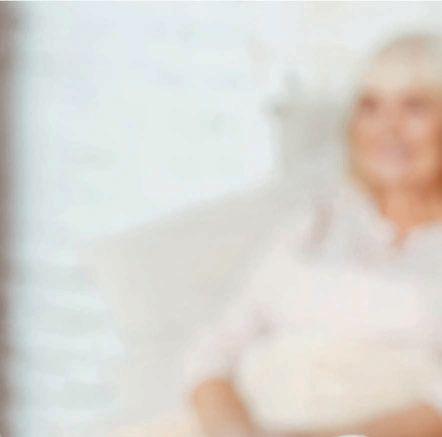






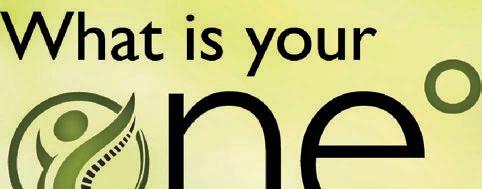



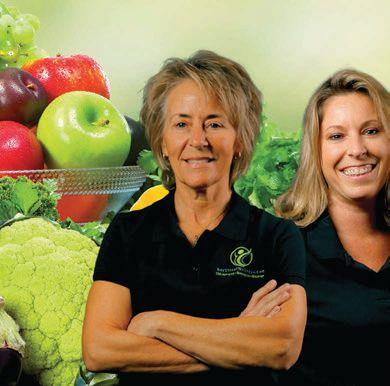







A one time treatment that offers dramatic results. Utilizing a unique hand piece that rotates 360 degrees, it offers the surgeon greater fl exibility to precisely reach and disconnect fatty tissue. With traditional liposuction the cannula can only reach above and below. With more range of motion, PowerX® allows the doctor to do everything from superficial sculpting to large volume fat removal. This innovative procedure is powerful yet gentle and can treat excess fat in the abdomen, back, chest, shoulder, hips, legs, or arms and results in less swelling, bruising and downtime.


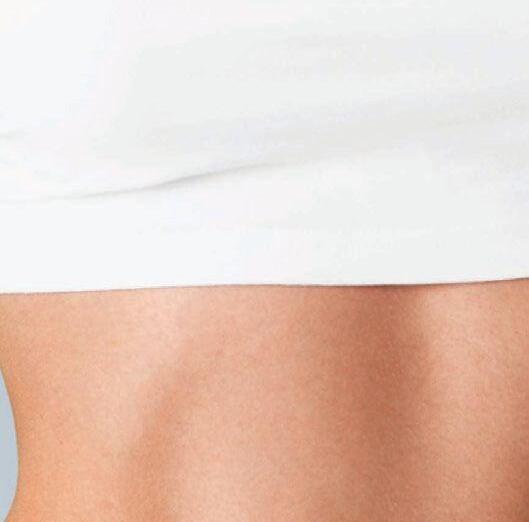



Gentle treatment, powerful results. 352.259.8599

What is the most beautiful sound in the world? You could name a lot of contenders. The cry of a healthy new baby. A choir singing the “Hallelujah” chorus of Handel’s “Messiah.” The purring sound of a finely tuned highperformance sports car. But I would submit that the most beautiful sound is laughter. One of the things I remember most about the early days of dating my wife is how much we laughed. Even today, after 37 years of married life, one of the things I love most about my wife is that she makes me laugh. In turn, I love to hear her laugh. It has been a treasured hallmark of our relationship. Now that I am a grandfather, one of the most joyous sounds is the unrestrained, infectious laughter of my young granddaughters at play. It is said that laughter is the best medicine. I don’t know how true this is but I certainly believe the point can be argued. There are few things in life as enjoyable as a good, hearty laugh. I mean the kind where you can’t catch your breath, tears are running down your face, and you are getting muscle cramps in your abdomen. Something about that just leaves you feeling good all over. There is much to love about laughter. It is universal. People in every culture, on every continent, and through all recorded history, laugh. Laughter is infectious. You simply cannot be around someone who is laughing without feeling an irresistible desire to laugh yourself. Laughter deflects nervousness and relieves tension. It communicates playful intent. It serves to bond us together. It simply isn’t possible to stay angry with someone when you are laughing together. Laughter is literally programmed into our DNA. We do not have to be taught to laugh;
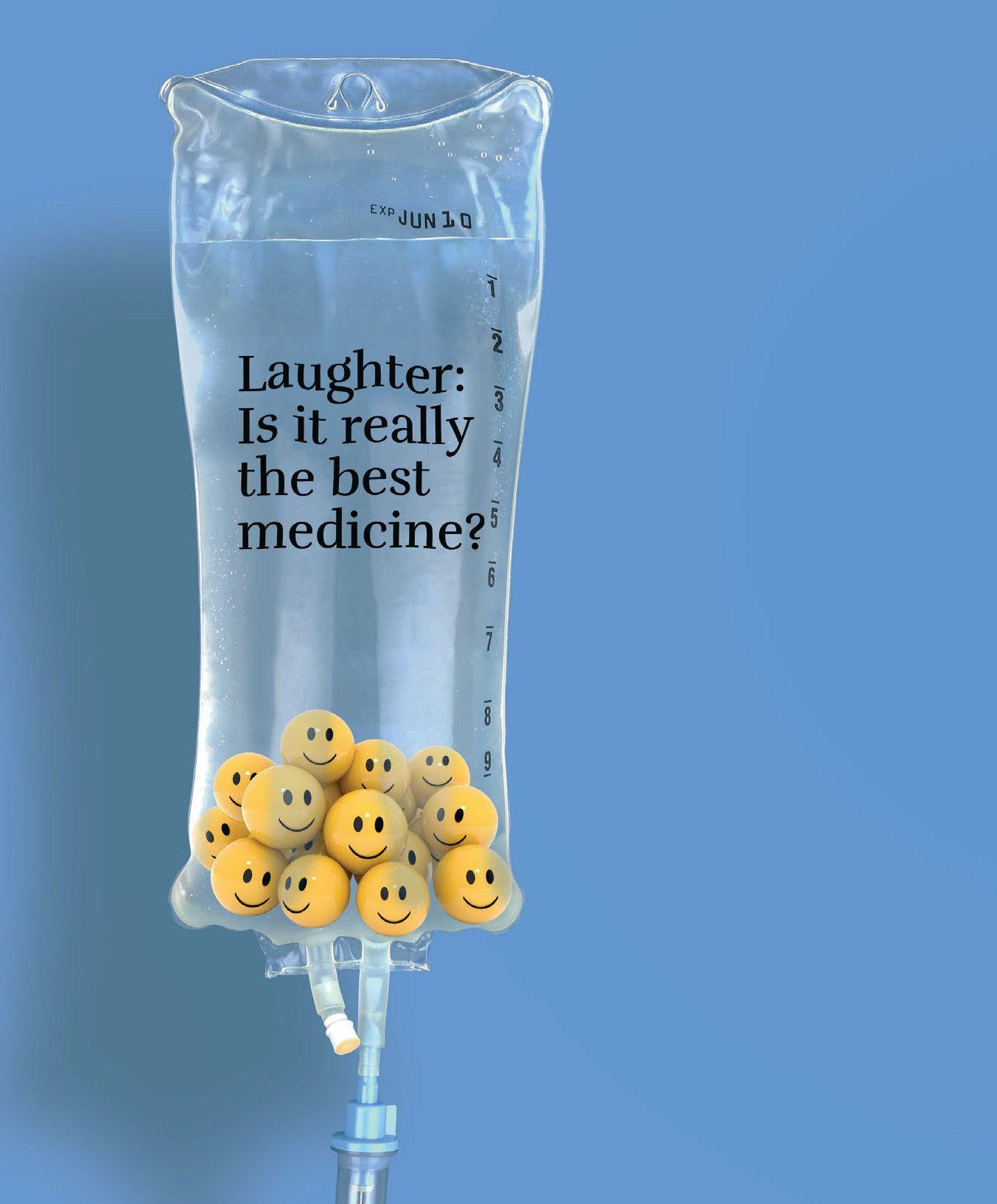
You can’t laugh away your troubles, but you can feel better.
Story: Dr. Richard T. Bosshardt
we do it spontaneously, starting as early as 3½ months of age.
What it is that prompts us to laugh is not clear. It is not as simple as hearing a funny joke—what makes a joke funny is a whole other mystery in itself—or seeing someone slip on a banana peel. A few studies were done to examine situations in which individuals laugh and some are surprisingly lacking in obvious humor: a greeting, an observation, a seemingly non-humorous statement. You can’t make yourself laugh. Forced laughter sounds like just that—forced; it is nothing like spontaneous laughter and does not produce any of the benefits of spontaneous laughter.
One cannot help but believe that laughter has to be good for us, but is there objective evidence of health benefits? Studies on laughter are few but some show interesting results. In one study of 19 individuals with diabetes, they were fed a meal and then made to sit through a tedious lecture. The next day, they ate the same meal and watched a comedy. Blood-sugar levels were checked and it was found that their blood-sugar levels were better controlled when the group laughed.
People tense up when watching a drama but relax when watching a

comedy. Relaxation has measurable effects in improving blood flow to tissues. Laughing raises one’s heart rate. One researcher found that it took 10 minutes on a rowing machine to raise heart rate as much as one minute of hearty laughter. Ten to 15 minutes of laughing will burn about 50 calories.

We know that stress is a ubiquitous modern-day killer because of its detrimental effect on our immune system. Some researchers suggest that, by helping reduce stress, laughter

might help boost our immune system. Studies even suggested a true physiological response to laughter, possibly by the release of endorphins or other chemicals in our brains that can have salutary effects in other parts of the body. There even are indications that the lining of our blood vessels benefit from laughter, thus potentially lowering the risk of heart disease, the No. 1 killer in the United States today.
Admittedly, the studies on the health benefits of laughter have not been conclusive. Some of the benefits may be ascribed to factors other than laughter alone, such as stronger social connections in those who laugh a lot. Even so, the role of laughter in boosting our quality of life is unquestioned. And, besides, who doesn’t want to laugh more? One of the prescriptions for staying healthy has been to exercise regularly. Perhaps we need to add to this the recommendation that we try to laugh about something every day. Whether it benefits us medically or not, it sure will make life more fun. I may have to order some preprinted prescription pads that simply read, “Laughter, do this at least once a day.”
In closing, a horse walks into a bar and sits down. The bartender walks over and says, “Why the long face?” See? Didn’t that feel good?

There is much to love about laughter. It is universal. People in every culture, on every continent, and through all recorded history, laugh. Laughter is infectious. You simply cannot be around someone who is laughing without feeling an irresistible desire to laugh yourself.









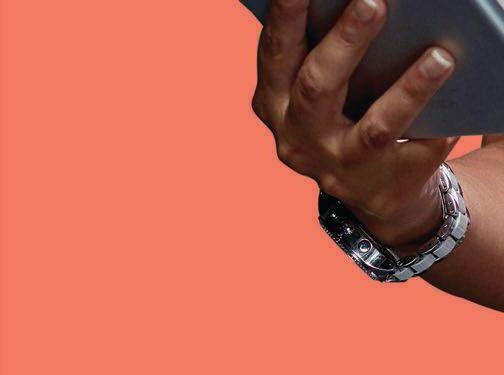
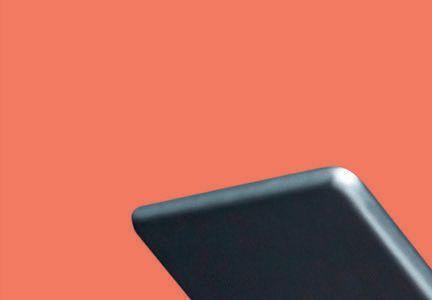

And wait from the comfort of your own home.




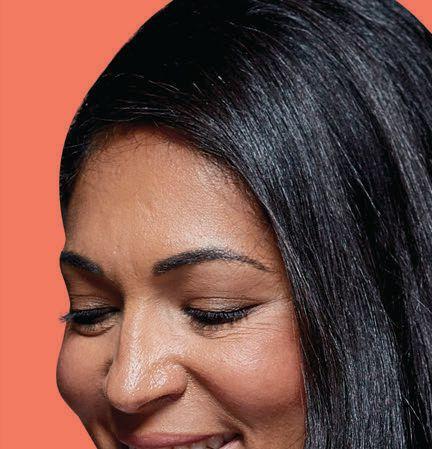

*For minor emergencies that are not life- or limb-threatening.
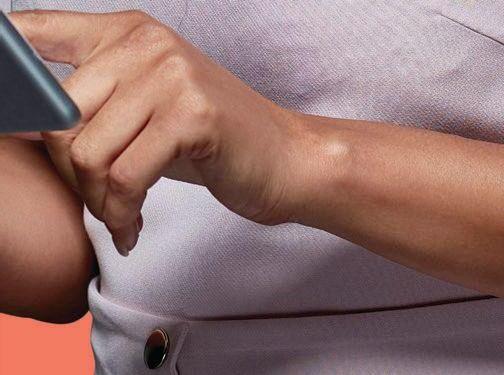
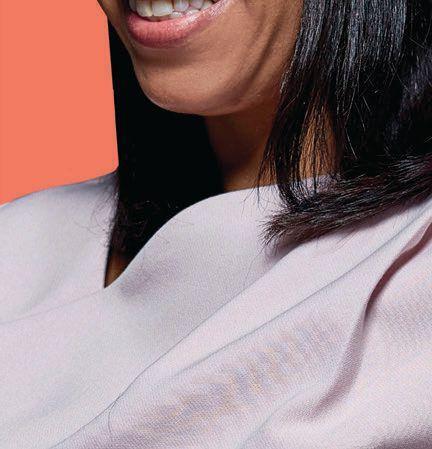



This debilitating disease is the leading cause of disability among adults over age 55. It often leads to joint replacement. Here are five steps from Dr. Victor Romano, author of “Finding the Source: Maximizing Your Results—With and Without Orthopaedic Surgery.”
1. Wear good shoes with arch supports to reduce weight-bearing on feet and keep arches in place.
2. Have a daily exercise and balance program. Arthritis
sufferers who exercise have been shown to do better than those who don’t.
3. Use a hinged-knee brace when needed for extra support. Wear the smallest brace that makes you the most comfortable.
4. Eat nutritious food and keep your weight under control. This reduces stress on knees and increases mobility.
5. Improve bone health with daily calcium intake. Take vitamin D and exercise. Used with permission.
The internet makes it convenient to learn about medical problems, but is it helping or hurting?
Story: Joy Stephenson-Laws
Online symptom checkers— often referred to as “Dr. Google”—where you simply enter whatever is ailing you and get a likely long list of what may be causing the problem, are some of the most popular and most visited sites on the internet.

There are a wide variety of sites to choose from, including the Mayo Clinic, Cleveland Clinic, WebMD, and familydoctor.org. While all the online symptom checkers are different in terms of design and functionality, the basic idea is you choose a body part and follow prompts to help get diagnostic suggestions.

While the general consensus among health-care providers is these sites help

•
you be proactive about managing your health, using them too often or visiting bad sites can do more harm than good. In fact, overuse of these has spawned a new term, “cyberchondriac,” a twist on “hypochondriac.” According to experts, cyberchondriacs search the web excessively, and sometimes, obsessively.
The pitfalls of falling into this type of online behavior and the risks it presents to your health are clear. You may start to believe every cough or rash is indicative of something serious. Each click magnifies your fears. You may frantically search for something that says you’ll be fine if you try a new, unproven home remedy.
Neither is good for your health—the former could result in unnecessary trips to the doctor, expensive medical tests, and stress, while the latter may convince you not to seek treatment.
So how can you tell if you are or if you’re becoming a cyberchondriac?

According to a paper by the New York State Psychiatric Institute, here are some telltale signs:
•
• On your worst day, you check sites three to four times a day.
• Looking online to get symptom information makes you feel more anxious.
• If any of the above apply to your online behavior with health research, your best bet is to go cold turkey and stop checking!
‘DR. GOOGLE’S’ PROPER ROLE IS EDUCATION
Despite initial, and ongoing, concerns, health-care experts and providers are in agreement the sites are here to stay and their popularity will continue to increase. So get the most benefit from your search.
First, remember not all online symptom checkers are created equal. In fact, researchers put them to the test by seeing how the sites performed on diagnosing case studies used at medical schools. They provided a correct diagnosis as one of the top three possible diagnoses only about 50 percent of the time. They did a little better in advising people to seek immediate medical care, around 57 percent of the time.
Limit yourself to sites that include licensed and respected health-care professionals.
DON’T REPLACE YOUR DOCTOR WITH ‘DR. GOOGLE’
Doctors unanimously agree that partnering with patients who are well-prepared for their appointments results in more productive discussions and better treatment outcomes.
Use the information from online symptom checkers and resources to prepare yourself to know what questions to ask. You can also do the following to maximize the benefit of your appointment:
• Prioritize and prepare. Being prepared with the issues you want to bring up will get you more of what you need and give the doctor an easier time understanding your concerns.
• ideally in order of importance. Organizing helps you get better answers faster.
•
discussion. Let your doctor know what your plan is and why you’d like to try something else. Keep communications open.
By using online symptom checkers and other health-care sites judiciously, you can enhance your relationship with your doctor and protect your health. Enjoy your healthy life!












































More than half of Americans take some form of dietary supplement for their overall health, according to a recent study published in the Journal of the American Medical Association. Taking multivitamins, fish oil, and other vitamin supplements is nothing new and something everyone should consider. But just as different car models require specific grades of fuel for maximum performance, individuals also need different levels of vitamins and nutrients to maximize their personal health.

However, too few recognize a key vitamin many are lacking: B12. Vitamin B12 deficiency has become a silent







epidemic. Some of the most commonly mentioned side effects include fatigue, lack of energy, sluggishness, and dizziness. While there is a bucket full of other causes we might blame for such symptoms—such as lack of sleep, depression, or even more serious health risks, such as anemia—the scary truth is that a deficiency in vitamin B12 ultimately could be behind many, if not all, of these issues.
As an example, a person low on red blood cells may have pernicious anemia, a B12 deficiency anemia caused by an inability to absorb the vitamin B12 needed for their body to make those healthy red blood cells. Therefore, there may be more serious effects of vitamin B12 deficiency to look into
than just the fatigue and sluggishness commonly associated with low B12 levels, for a lack of red blood cells itself could also cause those same effects.
As a vitamin B12 deficiency can manifest in a multitude of different ways, here are some important facts that may surprise you about the importance of vitamin B12 for your body:
1. THERE ARE NOT A LOT OF NATURAL B12-RICH FOOD SOURCES— Dairy products, eggs, meat, poultry, and fish provide the richest amounts of B12. Other foods, like some cereals, are enriched with B12. But overall, there are a limited variety of options for adequate B12 consumption, which leads us to the next important fact.
2. VEGETARIANS, AND ESPECIALLY VEGANS, ARE AT A HIGHER RISK FOR VITAMIN B12 DEFICIENCY— Those who have dietary limitations that include dairy, meat, and other animal-derived foods definitely should supplement their diets with B12.
3. WITH AGE, NOT ONLY DO WE NEED MORE B12, BUT IT ALSO CAN BECOME HARDER TO ABSORB— Ironically, we need more B12 as we age. The average adult should get 2.4 micrograms a day. Unfortunately, while you may take supplements to ensure you are getting enough, the dose you take may not be the dose you are absorbing,
ABOUT THE WRITER
especially if taken in pill form. Fortunately, sublingual vitamins such as Super B from NutraGlow provide supplementation with maximum absorbency. Sublingual vitamins are easier to take, taste better, and are more effective than those that come in pill form due to a superior absorption rate into the bloodstream.
4. YOUR BODY DOESN’T STORE VITAMIN B12 FOR A LONG PERIOD OF TIME— Even if you feel you eat plenty of foods rich in B12, that may not be enough. As we age, our body’s absorbency rates decrease, making it even more challenging to ensure we are getting enough B12 nutrients.
5. B12 HELPS MAKE YOUR DNA AND RBCS— This circles back to what was mentioned above. We need our
DNA and red blood cells even more than we need sleep and energy. B12 doesn’t just make us feel better, it also helps our body produce crucial elements of existence.
6. HEAVY DRINKING AND LONGTERM USE OF ACID-REDUCING MEDICATIONS ALSO CAN INHIBIT ABSORBENCY OF VITAMIN B12— Heavy alcohol consumption is not good for our bodies for a variety of reasons, the impact on vitamin B12 absorbency being one of them. Acid reflux and heartburn are common conditions also brought on by deeper-rooted factors that should be examined. Eliminating the need for medications for this issue would be a win-win situation.
Whether you don’t consume enough vitamin B12-rich foods, or your body does not absorb it well no matter how much you supplement, low vitamin B12 should be taken seriously. There are some fantastic options out there to improve B12 levels, products developed to help people maximize the benefits of vitamins B6 and B12. Look for vitamins that are preservative-free and promote improved overall health, energy, metabolism, and mental acuity. Be proactive with your health by paying attention to any signs you may suffer from one of the lesser-known (or well-known) effects of vitamin B12 deficiency. Speak with your doctor about getting tested for B12 levels and make sure you are taking the most absorbable form of vitamin B12 out there.
Whether you Whether yo don’t consume enough vitamin B12-rich foods, or your body does not absorb it well no matter how much you supplement, low vitamin B12 should be taken seriously.



























Numerous studies link strength training to better
Two quick exercises you can do right now are stand-ups and wall push-ups. Wall push-ups are like regular push-ups done on the floor, except performed against a wall. Start with 15 reps. Next, do stand-ups. Sit in a chair and get up without using chair arms. Hit your buns on the chair each time. Do 15 reps.
HERE ARE EIGHT GREAT MOVES TO INCREASE FLEXIBILITY THAT

them up to your chest. Hold for 10
Hamstring stretch: Keep your leg straight and at 90 degrees, and gently pull your leg toward you. Hold
3











Bicycle the legs: Do this for Twisters: Keep one leg straight
Resistance training that works specific muscle groups is an important aspect of fitness, helping increase muscle mass, slow down or halt muscle loss, slow bone loss, and maintain or increase joint flexibility. Working out with weights or bands or anything that provides resistance to your muscle gives older adults better function.
If you follow the American College of Sports Medicine guidelines, active aging adults should participate in resistance training at least twice a week. This greatly improves memory, attention span, problem solving, and decision-making, all which lead to a sharper mind.
ABOUT THE WRITER → Jaime Brenkus (exercisewithjaime.com) in the 1990s.

Unlike cardiovascular exercises, which come more naturally, strength training requires a person to pay attention to form, count repetitions, or remember what body part to work, all while stimulating the brain, which staves off the onset of dementia.
For a well-rounded mental program, include balance exercises, which help you stay independent by avoiding the disabilities that result from falling and give you confidence.
Try this one: Standing on your right leg, hold on to a chair with your left hand. Slowly reach with your right hand and try to touch your right foot 15 times. Then switch to the opposite side.
Stay flexible. Stretching exercises give you more freedom of movement, which allows more activity during your senior years, providing more independence.
Swimmers stretch: Lying on your stomach, bring your opposite arm and opposite leg up at the same
Cat stretch: On your hands and knees, hump your back up and down
Side reach: Sitting up in bed,


The focus of our practice is to provide the very best surgical care available to patients. We are committed to achieving this goal through continuing education and training in most current robotic and laparoscopic techniques. It is our belief that all patients deserve the best medical care available. We provide the most advanced, compassionate surgical care that has helped thousands live longer, healthier, happier lives.

For more information:
OUR STAFF: FROM LEFT TO RIGHT
JASON BOARDMAN M.D., F.A.C.S.
CHRISTOPHER JOHNSON D.O.,F.A.C.O.S., F.A.C.S.
JOSEPH M. ARMOTRADING II M.D., F.A.C.S
LUISANGEL A. RONDON, M.D.,FACS
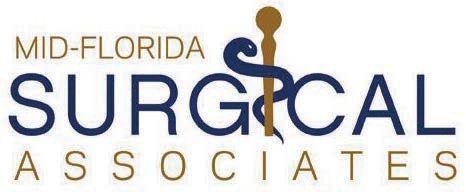

COURTNEY E. COLLARD PA-C
AMY E. DIEHL PA-C
BENJAMIN V. CHU PA-C

Women may think it’s moderate drinking, but it may be



A recent study that showed even moderate alcohol consumption can take years off your life not only attracted a lot of media attention, it also caused other studies about drinking to seem even more ndings about women.


We aren’t talking about harmless social sipping with friends here, and it’s worth exploring the growing negative role that alcohol plays in the lives of American women.



“My favorite line of all time is, ‘I don’t drink that much,’” says Dr. Soroya Bacchus, a psychiatrist and author of “How to Detox Yourself from Alcohol.” “Sometimes, the people who say this are right; they really don’t drink that much. More often, though, people say this to make themselves feel


Last year, a study published by JAMA Psychiatry reported that more Americans are drinking high amounts of alcohol, and some of the greatest increases are among women. In addition, about 5.3 million women in the United States drink alcohol in a way that threatens their health and safety, according to the National Institute on Alcohol Abuse


For those women, just trying to get sober won’t fix the fundamental problem that caused them to drink too much to begin with, Dr. Bacchus says.
“I don’t care about sober,” she says. “I care about healthy. No one drinks or uses drugs in a vacuum. Usually there is an underlying mental disorder that causes and worsens the alcohol or drug use.”


It’s important that women with serious drinking problems seek medical assistance so they can detox in a safe manner, Dr. Bacchus says. Alcohol has more complications from withdrawal than any other drug, and the death rate for alcohol withdrawal is between 5 percent and 8 percent, she says.
Even after detoxing, Dr. Bacchus says, a therapist can help women develop healthy psychological coping skills to avoid a relapse. The ways they can do that include:



EXERCISE. Every time you exercise, you build yourself up psychologically and physically, Dr. Bacchus says. “Before you know it, you have a positive habit that sustains you through tough times,” she says. “Instead of taking a drink, you go for a walk. Instead of falling into a rabbit hole of negative emotion, you hit the gym.”
BIOFEEDBACK THERAPY. This teaches you to develop voluntary, conscious control of physiological processes that are typically
involuntary and unconscious. “If you have alcohol cravings, biofeedback teaches you how to identify the physical sensations associated with them and allows you to deploy strategies to counter them,” Dr. Bacchus says.
HYPNOSIS OR HYPNOTHERAPY. Through hypnosis, a therapist can explore the potential root causes of alcohol abuse, such as a previously unknown disorder, a hidden memory, or a past trauma. Dr. Bacchus offers a caveat: Only undergo hypnotherapy with a trained professional you trust completely.
YOGA. Yoga is both a great exercise for muscles and joints and an excellent way to deal with stress. “This makes it a perfect practice for recovery,” Dr. Bacchus says, “because you need to rebuild your body from the ravages of alcohol abuse and rebuild your mind from the negative thought patterns you developed over years of addiction.”
“The goal is to replace the negative coping mechanisms of addiction with the healthy coping mechanisms of recovery,” Dr. Bacchus says. “You need your mind and body working in harmony so your soul can be at peace.”









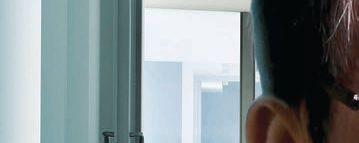
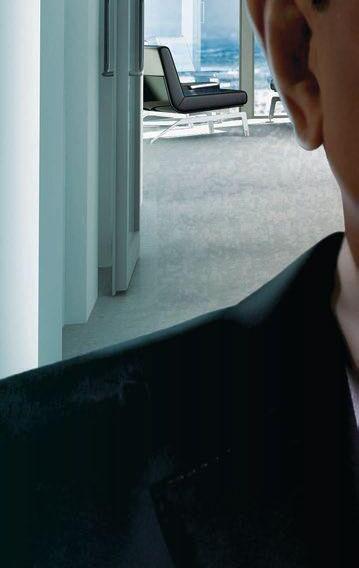


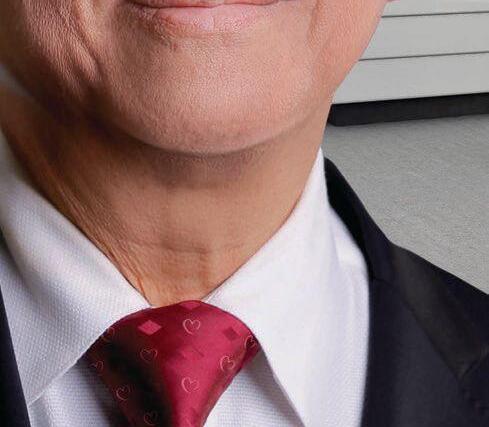
Dr. Saroj Tampira is board certified in interventional cardiology with more than 20 years’ of experience. Peripheral vascular intervention is one of Dr. Tampira’s main focuses. He has helped countless patients suffering from blockages of blood flow to the heart, arms and legs; returning them to their active lifestyles. He also helps patients suffering from chronic leg pain and swelling due to blockages. Most procedures can be done on an outpatient basis.
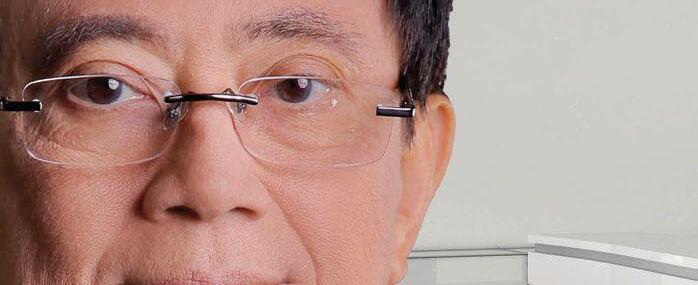



People suffering from depression tend to focus on negative things in their lives rather than counting their blessings. One of the most important things to do is to make a list every day of good things in your life.
belief that we are at the mercy of our emotions. The reality is we choose our emotions and feelings. It just takes practice. The next time someone says or does something that triggers a negative emotion, step back, take a deep breath, and think of an emotion that will better serve you. For instance, you might choose to feel mercy or pity on someone who hurts you, rather than anger.
One of the best ways to overcome loneliness and isolation is to move outside yourself and take action to help others. Taking the focus away from you enables you to turn the lens away from you and all your trouble. Instead, point it at someone else who needs you.
Most importantly, take steps to release your own emotional baggage,” Dr. Nelson says.



“In many years of practice and teaching, I have seen countless seemingly miraculous healings as a result of people releasing trapped emotions. We saw lives changed, broken hearts healed, and relationships restored when people free themselves from the burdens of the past.”
Dr. Nelson is the author of “The Emotion Code.”




Used with permission.



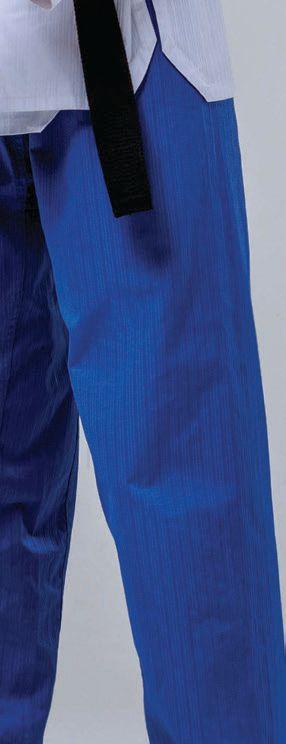

You have the power to transform your life. Martial arts expert Tae Yun Kim has helped thousands of people connect with that inner power, enabling them to attain goals they once thought were far beyond their reach. In her new book, “Seven Steps to Inner Power: How to Break Through to Awesome Life Secrets from a Martial Arts Master” (Mountain Tiger Press), she shares secrets—based on her own experiences and rooted in ancient martial arts tradition—that will allow anyone to break through the barriers blocking their dreams.
Kim’s life story is one of triumphing against the odds. A fi culture that viewed her birth as an omen of bad luck, she defi family but also 5,000 years of Korean tradition to begin martial arts training at the age of 7, ultimately becoming one of the highest-ranking martial artists in the world. She truly is a renaissance woman with a wide range of interests in the arts and business. Not only did she create her own martial arts school, but she founded other businesses, including Lighthouse Worldwide Solutions, a manufacturer of cleanroom monitoring systems and particle counters.






Kim believes everyone can be successful in any area of life. In her book, she explains the key to taking charge of your life lies in taking charge of your thinking. “How often are our minds somewhere else, thinking, ‘I’ve got to do this or that’ instead of focusing on the task at hand?” she asks. “How often do we dwell on a past event or worry about the future instead of celebrating the beauty of the moment? When our minds are distracted, our energy becomes fragmented in many different directions. When that happens over and over again, we become weak, ineffective, and even paralyzed.”
Kim writes that her seven steps to inner power “are the foundation of the path to finding and expressing the real you—what I call the Silent Master. No matter how that path progresses for you personally, these principles apply to everyone.” They are:


TRUTH – Truth is the process of selfdiscovery. “When you want to create change, you must be brave in facing the truth—the truth of your current weaknesses and the truth of your innate strengths—and you must be adventurous in taking charge of your life and implementing that change,” Kim writes. She urges people to think about what stories they tell themselves about why they are “stuck,” and envision how they would look and act if they were free from whatever is limiting them.
LOYALTY – Loyalty means commitment and dedication to one’s own life. That is, putting your real self forward with confidence, conviction, determination, purpose, power, and love. Loyalty also means sticking with your goals and plans in the long term. One tool the author suggests to remind you to stay loyal to your goals is to “clock” where you are on your personal life journey. “See your life as a 24-hour cycle and imagine what time it is right now for you,” she writes.
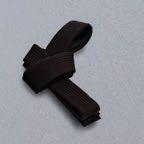
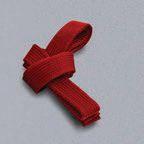
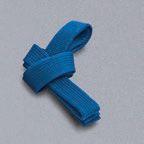
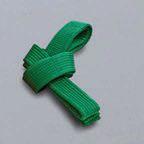
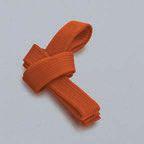
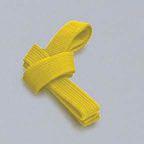
BODY AND MIND AS ONE – “If your mind and body are not acting together as one in pursuit of your goals, you will sabotage your efforts,” Kim explains. If you set a goal to run a marathon, but you eat improperly and skip workouts, you won’t attain your aim. If you continually divide body and mind, one or the other will eventually let you know.
SACRIFICE – “When you are trying to create a lasting change in your life, old habits and new habits cannot exist side by side,” Kim writes. Sacrifice means giving up those things that are getting in the way of your goals, whether they are habits like drinking too much or negative thoughts that are undermining your sense of self. She advises that when you are facing a sacrifice, you shouldn’t think of it as something you are being forced to give up. Instead, focus on why you want to give it up.
PURITY – “When we affirm the truth of our original nature and reject foreign, limited concepts about ourselves, we are expressing purity,” Kim contends. This means not holding on to poisonous states of mind like anger, jealousy, frustration, and hurt. Kim emphasizes the importance of daily “cleansing” and explains how to make your daily shower a time for valuable inner work.
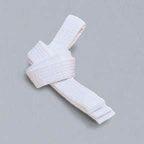
PATIENCE – Patience is the final step in the creative process, Kim argues. It is here that impatient people may backslide and lose the benefits of all their hard work. “Your life is always a work in progress. It takes time for you to grow and mature,” the author writes. She points to the metamorphosis of the caterpillar into a butterfly as one of the most beautiful symbols of patience.
LOVE – Before you can love another, you must first love yourself. When you really love yourself, you do the things that help you maintain and build your energy and life force, not tear them down, Kim says. She suggests greeting every day as if you’re preparing for a date with yourself. Bring your best self to every day of your life.
Throughout the book, Kim provides practical exercises to guide people through their journey to inner power. She also details the mental habits that boost confidence by ending self-defeating ways of thinking, and she shares success stories from many people she has counseled and trained. “Amazing things can happen if you are willing to step outside the lines you draw in your own mind,” Kim proclaims. “Seven Steps to Inner Power” is a compelling guide to fearless living that will enable anyone to rethink what is possible—and to reach for it with gusto.
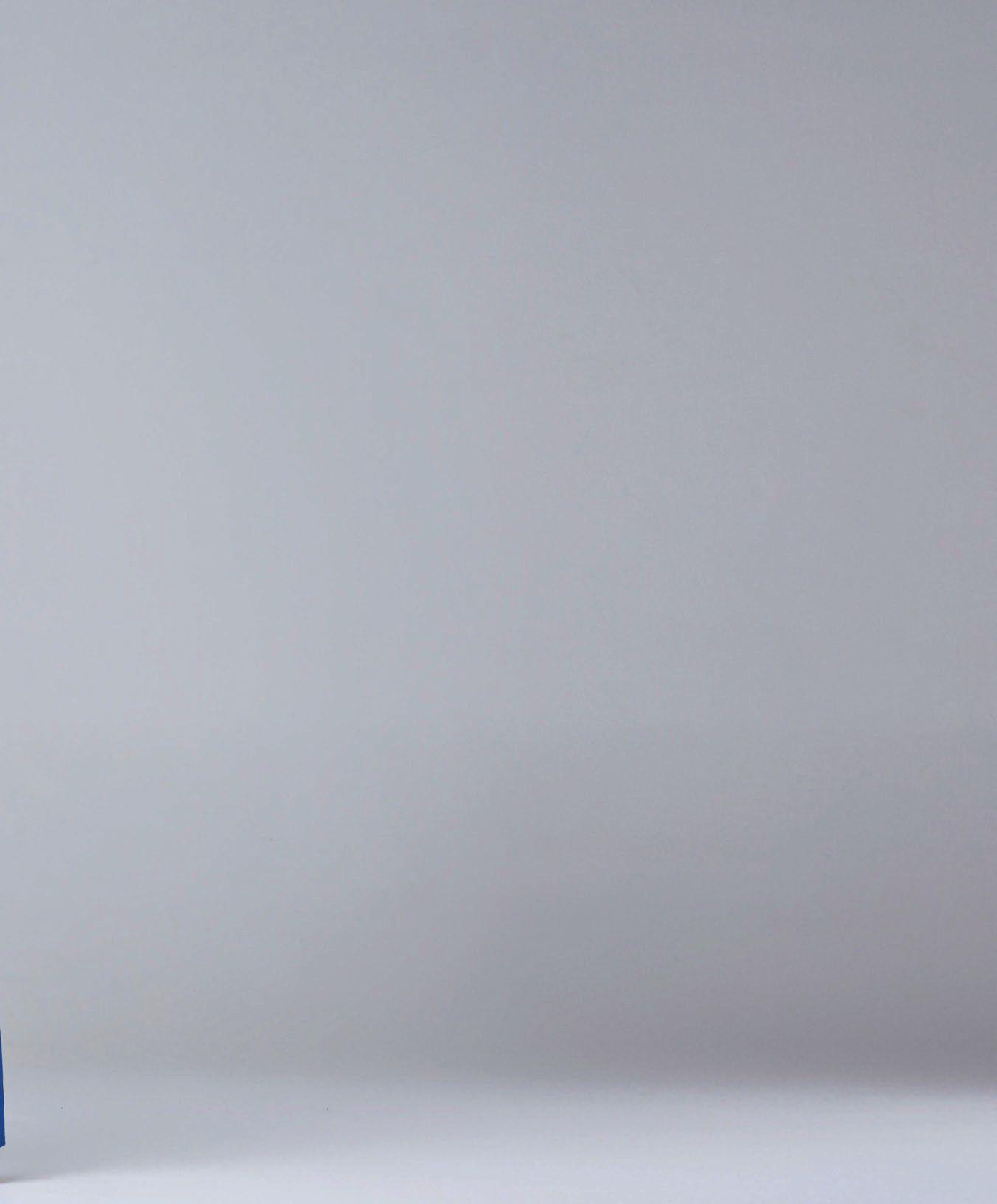









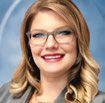


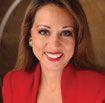
























Credit cards can be useful or risky. Keep in mind the times when you never should use your credit card:

• • You want something and don’t have the means to pay for it.
• • You don’t have money available to cover your bills.

• • You’re spending more than you earn and don’t want to adjust your life.
• • You just want to earn the rewards offered by your creditor.



• • As a tool for getting extra money through cash advances.

Taken from “Credit Cards: Strategies for Success,” a free booklet from debt.com.



 Story: BE Conrad
Story: BE Conrad














It is no secret that the cost of health care has risen sharply in recent years. While many people hoped the passage of the Affordable Care Act would lower premiums and expand coverage, the reality is a lot more complicated. Politicians argue over improvement to Obamacare and pundits debate the merits of various plans; however, many consumers are stuck in the middle, struggling to pay the high cost of health care and wondering how to make ends meet.
If this sounds familiar, you are not alone. Whether you get your health insurance from your employer or buy a plan on your own, the cost of health care is not going down. If you want to make your limited dollars stretch as far as possible, it’s imperative to look for creative solutions to the high cost of coverage and care.
Here are six smart ways to reduce your health-care expenses without giving up the coverage you need:
1. TAKE ADVANTAGE OF FREE PHARMACY CONSULTATIONS. Pharmacists are highly trained professionals, and they have a wealth of information to share. Consultations with your local pharmacist are free, but the advice you receive could be priceless.
2. SEEK EXPERT HELP TO REDUCE HIGH MEDICAL BILLS. If you get stuck with high medical bills from a lack of insurance or other reason, you may not have to pay the full amount. There are billing experts who help consumers understand, and possibly lower, those enormous hospital and doctor bills.
3. BE SMART ABOUT DEDUCTIBLE SCHEDULES . If you have met your deductible for the year, scheduling an elective procedure now could save you a lot of money. If you wait until the new year, you could find yourself on the wrong end of the deductible calendar. Now’s the time to do screenings and tests you may have put off due to cost.
4. SEEK UP-FRONT APPROVAL FOR OUT-OFNETWORK CARE. If you must go out of network for specialty care, always seek payment approval



first. Get that approval in writing, make careful notes of who you speak to, and verify your coverage before your scheduled appointment.

5. TAKE ADVANTAGE OF THE OPEN ENROLLMENT PERIOD. Whether you get your health insurance through your employer, through Medicare, or on your own, the open enrollment period allows you to make changes and seek lower costs. Take advantage of this annual period to get the coverage you need at the lowest possible price.
6. CONSIDER PAYING CASH FOR GENERIC DRUGS. In some cases, the cash price of your generic drugs could be less than the cost of your deductible, so always ask about the cash price when filling your prescriptions.
With the cost of health care stuck on an upward trajectory, ordinary consumers need to look for new ways to save.
You do not have to surrender to high healthcare expenses. There are proactive steps you can take to reduce those costs and keep more money in your pocket.
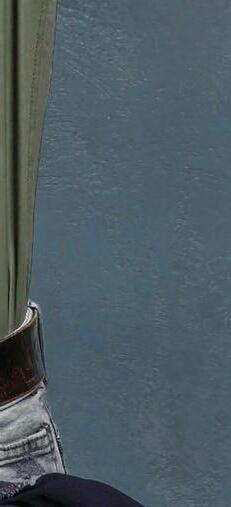

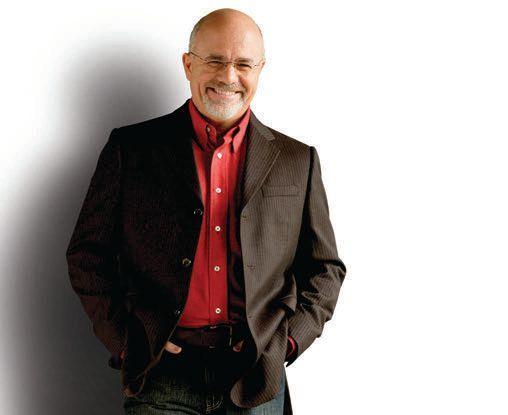
Dear Dave, I’m 28, single, and am debt-free. In addition, I make $70,000 a year and have the equivalent of six months of expenses set aside for emergencies. Should I save up to pay cash for a house or is mortgage debt OK? I’d like to keep the price of a new home between $200,000 and $225,000. Since I currently live in a nice apartment, I think I can save about $20,000 a year. What do you think?
—Kathryn
Dear Kathryn,
It sounds like you’re in great financial shape. Congratulations on becoming debt-free!
Let’s take a look at both scenarios. If you can save $20,000 a year, that means you’re about 10 years away from a nice, paid-for home, and you’re still debt free. That’s one option. At the same time, I don’t yell at people for taking out a 15-year, fixed-rate mortgage, where the payments are no more than 25 percent of their monthly take-home pay. In this situation, you could save like crazy for a couple of years and make a big down payment on a home in the price range you’re talking about. Then, you could pay off that house in just 15 years.
I honestly don’t have a problem with either solution, Kathryn, but think about this: Wouldn’t it be great to have your own home and still be completely debt-free at 40? It’s something to think about!
—Dave
Dear Dave, A debt collection agency started calling them an initial payment and made an agreement to pay off the debt in monthly installments. This morning, again wanting payment. Can I legally demand they not call me at my place of employment?
—James

Dear James,
Absolutely! You have a legal and moral obligation to pay your debts, and I’m glad this is something you recognize. But collectors have rules they must follow. They’re governed by law just like everyone else.
Be certain to keep your end of the agreement. Make your payments on time, or early, whenever possible. Then, if they call you at work again, remind them of your initial payment and the terms of the agreement already in place. Be polite, but firm, and demand they never call you at your office again.
In addition, send them a certified letter, return receipt requested, so you’ll have proof you sent the letter and they received it. In the letter, let them know that—according to guidelines set forth in the Federal Fair Debt Collection Practices Act—you are demanding they not call you at your office again.
If they call you there after receiving this formal demand to stop, they’ll be in violation of federal law. If that happens, let them know you’ll talk to a lawyer and sue them.
—Dave


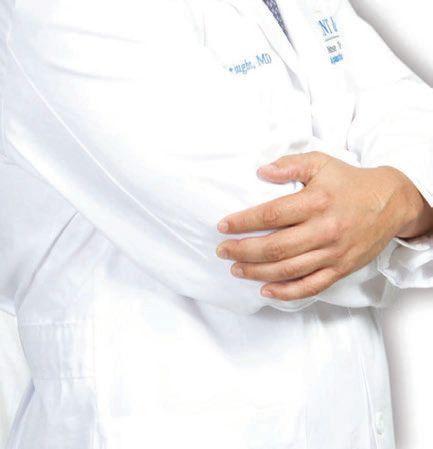

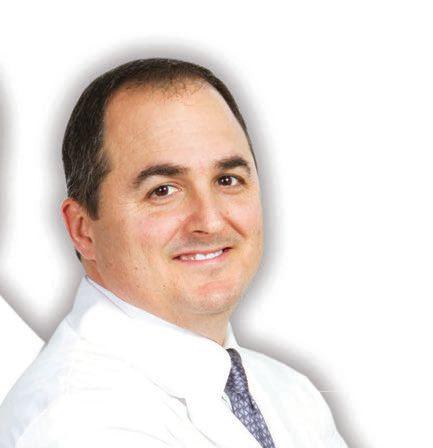
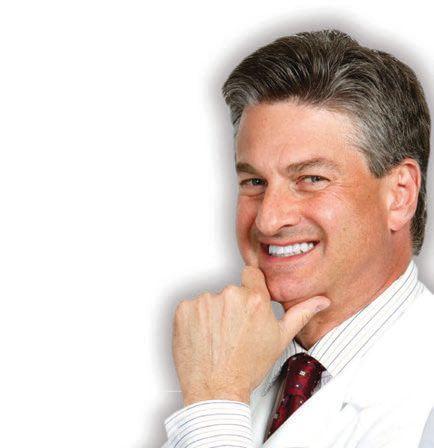 Michael A. Freedman, DO
Michael A. Freedman, DO
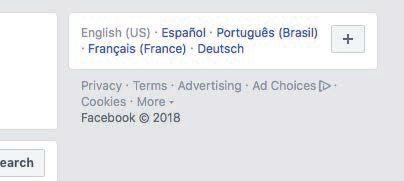


Annoying status updates are reason enough to kick Facebook to the curb.


 Story: James Combs
Story: James Combs
In January 2017, I wrote a column about Facebook and vowed to delete my account due to wacky things people post. I never kept that promise, unfortunately, because people are posting even crazier things these days. Here’s a sampling of my News Feed:
7:40am: give us play-by-play details of his mundane day. “Just got out of the shower,” he wrote.
9:11am: Mary posted seven pictures of her grandchildren. They sure haven’t grown much since the 11 pictures posted yesterday.
9:32am: Ted posted a motivational quote: “You can be the ripest, juiciest apple in the world, and there’s still going to be somebody who hates apples.” Translation: Ted didn’t score at the bar last night.
10:59am: Elizabeth went on a political rant: “Donald Trump is an obnoxious, disgusting pig.” Yep, political Facebook posts change a lot of people’s minds. Said nobody, ever.
12:02pm: Carrie posted a memory to remind Facebook
today. I didn’t care then. Why would I now?
1:42pm: Timothy shared a chain message: “This is a cat named Bob. Bob was abused and has lost sight in both eyes. This is a test to see how many likes and shares Bob can generate. If
you refuse, you must hate animals.” emotional blackmail aggravates me.
3:45pm: sunbathing at Daytona Beach. Next time, leave your camera phone at the hotel.
5:09pm: Jim posted a fake news story. The headline read, “Spider found in tampon results in medical emergency.” One friend comically commented, “Maybe the spider needed a new website.”
7pm: Rebecca declared her love by writing, “I have the best hubby in the world,” followed by predictable hashtags: #luckywoman, #lovemyman, #theloveofmylife, #arentwecute? That’s much more romantic than telling him in the privacy of your bedroom.
8:30pm: Julie posed a question: “My baby is cutting teeth and is miserable. What can I do to make her feel better?” Here’s a wild idea: Take your baby to a pediatrician. Don’t seek medical advice on Facebook.
off for good.
thought-provoking status update.
“Just fed the dog.”
Specializing in:

• Mini Face and Neck Lift with Smartlipo of Neck and Jowls
• Xeomin/Botox/Belotero/Radiesse

• Direct Neck Lift
• Torn Earlobe Repair
• Smartlipo (Laser Assisted Liposuction)





• Abdominoplasty (Tummy Tuck)
• Arm Lift
• Thigh Lift
• Body Contouring After Weight Loss
• Breast Augmentation
• Breast Reduction and Lift
• Skin Cancer Removal and Reconstruction







Not only are we treating more than 65,000 patients a year in our emergency room, but we are doing it with precision. Florida Hospital Waterman has the highest level of chest pain accreditation and exceeds national standards to provide faster life-saving care.
Florida Hospital Waterman has an average door-to-balloon time of 30 minutes faster than the national standard of 90 minutes set by the American College of Cardiology. Florida Hospital Waterman’s 2017 Median is 53 minutes.
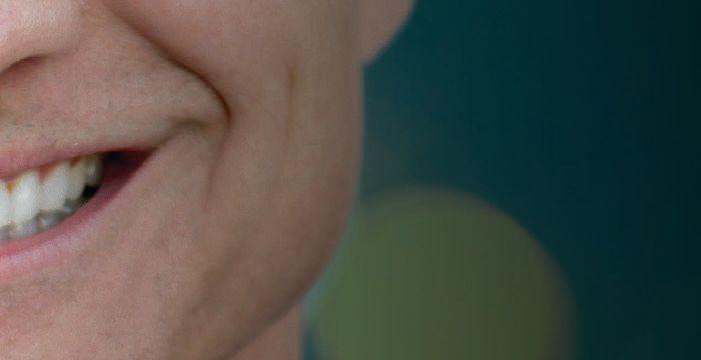
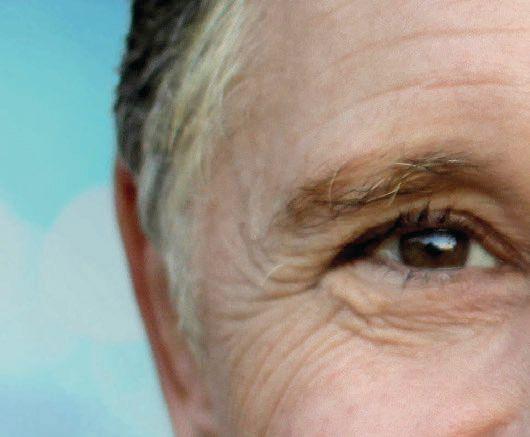
FHWatermanER.com




